Posts Tagged Abbie Hoffman
We mistakenly think repressing our passions is holy: “Churches call them ‘sinful’; we deem them ‘inappropriate’ in middle class homes.”
Posted by sillymickel in books, consciousness, Experience Is Divinity, Funny God, God, Michael Adzema author, spirituality on September 19, 2015
“God is not angry, vengeful, or any negative emotions, but since, having experienced mostly that and not being able to imagine truly wonderful positive emotions, we think we can approach the Divine by denying emotions as well. We wish to repress passion, anger, and tears out of existence. Churches call them “sinful”; we deem them “inappropriate” in middle class homes. We create stories where Spock-like figures are said to be mystical, religious, holy, when actually it is Frodo who is. Abbie Hoffman was more mystical, in this sense, than any Pat Robertson or Billy Graham.”
– from “Funny God: The Tao of Funny God and the Mind’s True Liberation”
http://www.amazon.com/Funny-God-Minds-Liberation-Return/dp/1499504845/ref=sr_1_1_twi_pap_2?s=books&ie=UTF8&qid=1442301038&sr=1-1&keywords=michael+adzema
https://www.facebook.com/notes/10152683728223138
#spirituality #consciousness #passion #God #repression #follow #tsu #Spock #AbbieHoffman #anger
Generations – Their Drugs and Politics. Gen Xers Are Fifty-ish, Millennials Are Sixty-ish: 21st Century and Its Discontents, Part 29
Posted by sillymickel in activism, authenticity, being yourself, Class, Culture, Generations, globalrevolution, History, individualism, nonconform, philosophy, Politics, psychology, US on July 4, 2012
Kaleidoscope of Postmodern Life, Part Twenty-Nine: An Aside on Drugs and Generations—Sixties, Gen X, Millennials and Their Parents
Millennials Are Sixty-ish
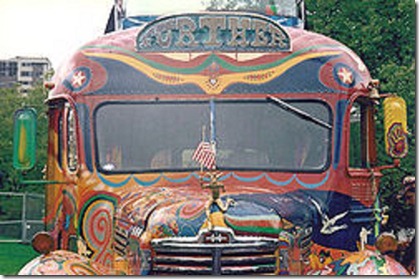 There is another overlooked factor or aspect of this rise in drug use in the Nineties by Millennials: These youngsters were the sons and daughters of the Sixties generation who, in their own youth, as we all know too well, engaged in drug experimentation. In fact, this younger generation of drug users has sometimes been called the baby-boomer “echo” generation.
There is another overlooked factor or aspect of this rise in drug use in the Nineties by Millennials: These youngsters were the sons and daughters of the Sixties generation who, in their own youth, as we all know too well, engaged in drug experimentation. In fact, this younger generation of drug users has sometimes been called the baby-boomer “echo” generation.
Gen Xers Are Fifty-ish

 Millennials are quite a bit different from the previous “echo” generation — Gen X. The generation that came to age during the Eighties—Yuppies and Xers—had parents who were
Millennials are quite a bit different from the previous “echo” generation — Gen X. The generation that came to age during the Eighties—Yuppies and Xers—had parents who were 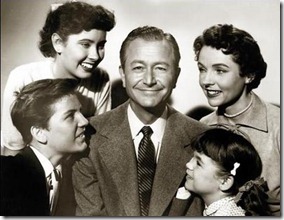 born during the Great Depression and
born during the Great Depression and  World War Two, who had their young adult formative years during the Eisenhower — Joe McCarthy –Presley Fifties. So Gen X was influenced by their parents to conservatism, career-mindedness, and, for drug-of-choice, alcohol.
World War Two, who had their young adult formative years during the Eisenhower — Joe McCarthy –Presley Fifties. So Gen X was influenced by their parents to conservatism, career-mindedness, and, for drug-of-choice, alcohol.
But this “echo” generation of Millennials has parents whose young adulthood was forged in the rebellion, drug and sex experimentation, activism, liberal-radicalism, and idealism of the Sixties, not the Fifties. [Footnote 1]
Forget What You’ve Heard About Generation Gap

 Generationally speaking, we know that children do not predominantly rebel to the opposite of their parents’ values. Kenneth Keniston, for one, has made it clear—referring to studies—that children are paramountly influenced by the values and attitudes…conscious and unconscious…of their parents. So this most recent cohort of youth was of course going to be more liberal in their attitude to drug use than Gen X, even if their parents, in their coming into adulthood, overtly decry or are against the use of drugs. Keep in mind also that many of the baby-boomers have retained, not reversed, their acceptance of drug experimentation, and many still believe in and use drugs; many still considering the occasional use of certain types—especially the psychedelics, and to some extent, pot—to be an aid to self-development and/or spiritual awareness.
Generationally speaking, we know that children do not predominantly rebel to the opposite of their parents’ values. Kenneth Keniston, for one, has made it clear—referring to studies—that children are paramountly influenced by the values and attitudes…conscious and unconscious…of their parents. So this most recent cohort of youth was of course going to be more liberal in their attitude to drug use than Gen X, even if their parents, in their coming into adulthood, overtly decry or are against the use of drugs. Keep in mind also that many of the baby-boomers have retained, not reversed, their acceptance of drug experimentation, and many still believe in and use drugs; many still considering the occasional use of certain types—especially the psychedelics, and to some extent, pot—to be an aid to self-development and/or spiritual awareness.
Family Lies Not “Family Ties”

 The myth that youth rebel against their parents’ values was expressed and propagandized by the TV show “Family Ties.”
The myth that youth rebel against their parents’ values was expressed and propagandized by the TV show “Family Ties.” 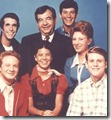 This was an oh-so-convenient portrayal, as it contributed to the pervasive scapegoating of the Sixties generation by the Fifties Generation—the Eisenhower–Joe McCarthy–Presley generation—who came into their Triumphant Phase, that is, took over the reins of society as mature adults in the Eighties.
This was an oh-so-convenient portrayal, as it contributed to the pervasive scapegoating of the Sixties generation by the Fifties Generation—the Eisenhower–Joe McCarthy–Presley generation—who came into their Triumphant Phase, that is, took over the reins of society as mature adults in the Eighties.
Rebellion in Youth Amounts to Being Uncompromising About Parents’ Values Not Defying Them

 This “Family Ties” kind of rebellion, however inaccurate, seems to be credible largely as a result of the observation that youth do rebel against their parents. But it
This “Family Ties” kind of rebellion, however inaccurate, seems to be credible largely as a result of the observation that youth do rebel against their parents. But it  ignores the fact that when they do, and they don’t always, they revolt or rebel, as in the Sixties youth, most often in the direction of being more insistent of actually living the values of their parents, not simply voicing them.
ignores the fact that when they do, and they don’t always, they revolt or rebel, as in the Sixties youth, most often in the direction of being more insistent of actually living the values of their parents, not simply voicing them.  As Keniston found out, for example, as he described in his follow-up to The Uncommitted, in the book, Young Radicals: Notes on Committed Youth, radical youth had liberal (hardly conservative!) parents.
As Keniston found out, for example, as he described in his follow-up to The Uncommitted, in the book, Young Radicals: Notes on Committed Youth, radical youth had liberal (hardly conservative!) parents.
 When Sixties youth were angry at their parents it was out of their perception of their parents as compromising and not living out their own expressed ideals, as laid out to their children in raising them. Therefore, Sixties rage against adults came out of their disgust at their parents for “not walking their talk.” As we may recollect, there was the oft-repeated charge of “hypocrite” directed by some of these youth toward their parental generation.
When Sixties youth were angry at their parents it was out of their perception of their parents as compromising and not living out their own expressed ideals, as laid out to their children in raising them. Therefore, Sixties rage against adults came out of their disgust at their parents for “not walking their talk.” As we may recollect, there was the oft-repeated charge of “hypocrite” directed by some of these youth toward their parental generation.
Millennials and Their Sixties Parents
In this regard notice also that this latest crop of young—born mid-70s through roughly 2000 (Boomers had children over a longer expanse of time than generations previous and since, for reasons that I’ve dealt with in other places) 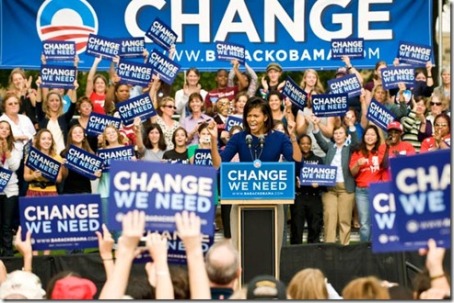 and being now in their twenties and thirties…the sons and daughters of the Sixties Generation—has also seen increases in voting for liberal or Democratic candidates. Their turnout for Clinton in 1992 was the first time since the Seventies that the youth vote went Democratic. Their support of Obama was widely given as the reason for his success.
and being now in their twenties and thirties…the sons and daughters of the Sixties Generation—has also seen increases in voting for liberal or Democratic candidates. Their turnout for Clinton in 1992 was the first time since the Seventies that the youth vote went Democratic. Their support of Obama was widely given as the reason for his success.
Occupy Wall Street … Sixties Gen Liberals, Millennial Revolutionaries?

 In the Nineties we saw — despite the AIDS scare — an end to a fledgling “youth celibacy movement” — which had been a movement of Yuppie/Gen Xers encouraged by their Fifties Generation parents. The Millennials,
In the Nineties we saw — despite the AIDS scare — an end to a fledgling “youth celibacy movement” — which had been a movement of Yuppie/Gen Xers encouraged by their Fifties Generation parents. The Millennials,  echoing again their parents and this time the sexual revolution, were noted for early and/or increased sexual experimentation.
echoing again their parents and this time the sexual revolution, were noted for early and/or increased sexual experimentation. This latest cohort of youth also has seen increases in idealism, activism, and volunteerism. It is no coincidence that we have finally seen a rising up of activism again in the occupy wall street movement, with Millennials taking the lead and supported, taught, and inspired by their Sixties cohort parents. [Footnote 2]
This latest cohort of youth also has seen increases in idealism, activism, and volunteerism. It is no coincidence that we have finally seen a rising up of activism again in the occupy wall street movement, with Millennials taking the lead and supported, taught, and inspired by their Sixties cohort parents. [Footnote 2]
Footnote
1. See my blog/book Culture War, Class War, especially Chapter Two: Matrix Aroused, the Sixties and Chapter Four: Drugs of Choice and Generational Cultures – Concocted Worlds and Chapter Five: The King Won’t Die – An Aborted Changing of the Guard.
2. These aspects and generational phenomena are spelled out in more detail in my work-in-progress, Regression, Mysticism, and “My Generation.” Right at hand, however, you can read an elaboration of some of these ideas in the chapters mentioned in Culture War, Class War—especially Chapters One through Seven and the post, Awakening Millennial Generation Occupy Global Revolution.
Continue with Tune Inward, Turn Back, Drop Down – Psychedelics, Depression, and Those Nasty Birth Feelings: 21st Century and Its Discontents, Part 30
Return to Raging to Reenter, Vampire Apocalypse, Drug Use, and Being Gratefully Dead—Perinatal Printouts Of Sixties, X, and Millennial Generations. 21st Century and Its Discontents, Part 28
Invite you to join me on Twitter:
http://twitter.com/sillymickel
friend me on Facebook: https://www.facebook.com/sillymickel
Drugs of Choice and Generational Cultures – Fifties, Gen X, and Millennials … and the True Story of How America Was Remade in the 70s and 80s to Benefit the 1%
Posted by sillymickel in activism, authenticity, being yourself, Class, Culture, economics, Generations, globalrevolution, History, individualism, life, nonconform, occupywallstreet, philosophy, Politics, psychology, spirituality, US on June 28, 2012
Culture War, Class War Chapter Four: Drugs of Choice and Generational Cultures – Concocted Worlds
Dawn of the Dead: Yuppies, “Me” Generation, Reagan, Matrix Manifesting, and Drug Effects – Speed

Drugs of Choice and Generational Cultures – Concocted Worlds. America’s Values Were Reversed
Drugs and Generations
Drug Effects—Cocaine, Speed

 Drugs in the amphetamine class are stimulants. This includes cocaine, methamphetamine, “meth,” “crystal,” crack cocaine, “crack,” speed, amphetamine, uppers, “whites,” and so on. They repress Pain extraordinarily well.
Drugs in the amphetamine class are stimulants. This includes cocaine, methamphetamine, “meth,” “crystal,” crack cocaine, “crack,” speed, amphetamine, uppers, “whites,” and so on. They repress Pain extraordinarily well.
Building castles in the sky
 They are euphoriants and cause one to have the feeling that one’s mental capacities are expanded. One feels that one can envision projects and outcomes precisely. So one expends oneself in organizing and preparing for great achievements, which rarely are embarked on.
They are euphoriants and cause one to have the feeling that one’s mental capacities are expanded. One feels that one can envision projects and outcomes precisely. So one expends oneself in organizing and preparing for great achievements, which rarely are embarked on.
Free from fear, reckless, overconfident, risk-taking
 Since these drugs repress Pain, creating an amped state of mind more than normally able to fend off unwanted emotional material, they repress the normally present residue of fear, with its attendant caution in the face of activities outside of one’s comfort zone requiring forethought and anticipation. One does not feel constrained by normal fears or apprehensions, so one throws oneself into new activities with reckless abandon. One feels overly confident in one’s abilities and engages in all kinds of risk-taking—financially, sexually, interpersonally, legally. These activities have one embarking on dubious schemes which rarely pan out.
Since these drugs repress Pain, creating an amped state of mind more than normally able to fend off unwanted emotional material, they repress the normally present residue of fear, with its attendant caution in the face of activities outside of one’s comfort zone requiring forethought and anticipation. One does not feel constrained by normal fears or apprehensions, so one throws oneself into new activities with reckless abandon. One feels overly confident in one’s abilities and engages in all kinds of risk-taking—financially, sexually, interpersonally, legally. These activities have one embarking on dubious schemes which rarely pan out.
A land of light and darkness
 Despite these negatives the corollary of this mental activity is that one’s ability to think and see more clearly on some issues is enhanced, just because one’s fears can pollute one’s perception and apprehension of things.
Despite these negatives the corollary of this mental activity is that one’s ability to think and see more clearly on some issues is enhanced, just because one’s fears can pollute one’s perception and apprehension of things.
It is enlightening to remember that Sigmund Freud, among other notables in history, experimented with cocaine. At one point, Freud was heartily endorsing its use to his colleagues; he was waxing expansively about its benefits for mental life and clarity of consciousness. Of course, he changed his position on this later. No doubt his use led him to see its face of darkness as well.
Glimpses of clarity
Nonetheless, concerning the positive aspects of cocaine, it can be mentally enhancing partly because of its repression of fear. For fears, as mentioned, are both of the helpful-cautionary as well as the oppressive types. Being released from the oppressiveness of fears, being freed of the constraints of “fearful thinking,” can result in seeing one’s reality more clearly. Feeling fearless can lead one to acknowledging truths and realities normally defended against—thus being therapeutic even, getting a glimpse of reality outside of one’s fears.
Reckless
 Being freed from normal caution, however, can lead one into reckless activities with consequences far beyond one’s ability to handle in either a normal, or drugged, state. It is no coincidence that these drugs have seen heavy usage by wartime participants—notable are their use by fighter pilots and by Vietnam warriors.
Being freed from normal caution, however, can lead one into reckless activities with consequences far beyond one’s ability to handle in either a normal, or drugged, state. It is no coincidence that these drugs have seen heavy usage by wartime participants—notable are their use by fighter pilots and by Vietnam warriors.
A land of empathy and insensitivity
Lastly, since these stimulants repress feelings, they can lead to insensitivity toward others. But since they can repress fear which blocks truer perception of and appreciation of others they can lead, paradoxically, to feelings of love toward others and a feeling of finally really seeing others and appreciating them for who they are, not simply in the way one has cast them (“pigeon-holed” them) to fit into one’s scripts, agendas, ego projects, or desires.
Matrix Manifesting
The Eighties
 The Eighties saw an epidemic of use of cocaine. This was commonly attributed to Yuppies, which is the popular term for the Young Upwardly-mobile Professional character of this era and is contrasted with the idealistic, activist, and anti–Vietnam-War Yippies (Youth International Party, whose founder and most famous member was Abbie Hoffman).
The Eighties saw an epidemic of use of cocaine. This was commonly attributed to Yuppies, which is the popular term for the Young Upwardly-mobile Professional character of this era and is contrasted with the idealistic, activist, and anti–Vietnam-War Yippies (Youth International Party, whose founder and most famous member was Abbie Hoffman).
.

Reagan, Yuppy-Kay-Yo-Kay-Yay
Yuppies came in at the same time as Ronald Reagan into the White House and, indeed, exemplified much of what Reagan stood for. They were seen as greedy, over-achieving, materialistic, narcissistic, and societally and environmentally insensitive careerists.
“Love is all you need” turned into “Money is good!”
 They were portrayed in film; one in particular that sought to delineate the attitudes of this character type was “Wall Street,” in which Charlie Sheen plays the role of the Yuppie, mentored by the Fifties Generation character, Gekko, played by Michael Douglas. Together they give a portrayal of complete self-centeredness and insensitivity to the ways their Machiavellian strategies harm others or the environment. They are driven solely by a value that
They were portrayed in film; one in particular that sought to delineate the attitudes of this character type was “Wall Street,” in which Charlie Sheen plays the role of the Yuppie, mentored by the Fifties Generation character, Gekko, played by Michael Douglas. Together they give a portrayal of complete self-centeredness and insensitivity to the ways their Machiavellian strategies harm others or the environment. They are driven solely by a value that  “Money Is Good!”—a slogan completely the opposite of the previous generation — the Sixties Generation — whose attitudes were expressed in lyrics like “I don’t care too much for money; money can’t buy me love” and “Love is all you need”; who bought and lived by books with titles such as How to Live on Nothing, The Greening of America, and Back to Eden; and whose most famous slogan was “Tune in, Turn on, Drop out” (or it was sometimes said, “Turn on, Tune in, Drop out”—I’m not sure anyone in the generation knew which was the “proper” way to say it).
“Money Is Good!”—a slogan completely the opposite of the previous generation — the Sixties Generation — whose attitudes were expressed in lyrics like “I don’t care too much for money; money can’t buy me love” and “Love is all you need”; who bought and lived by books with titles such as How to Live on Nothing, The Greening of America, and Back to Eden; and whose most famous slogan was “Tune in, Turn on, Drop out” (or it was sometimes said, “Turn on, Tune in, Drop out”—I’m not sure anyone in the generation knew which was the “proper” way to say it).
“Me Generation”
In any case, another term used for the Yuppie Generation was The “Me” Generation. Thus it was that from the late Sixties, early Seventies (the height of Vietnam-Era Youth’s influence on society and culture) to the late Seventies and most of the Eighties—within a period of a mere decade—the prevailing, media-amplified cultural values of our society swung, pendulum-like, a hundred-and-eighty degrees from where they had been.
The Big Lie About Yuppies Being Hippies: Matrix Manifesting, Class Warfare Against Sixties Activism
 History of the Movement: The Continued Slandering of a Generation, So an Activist One Would Never Again Arise
History of the Movement: The Continued Slandering of a Generation, So an Activist One Would Never Again Arise
Matrix manifest and The Big Lie
This change had a great deal to do with the efforts of the World-War-Two Generation—in total horror at the way their sons and daughters seemed to be reversing the values they had lived, and fought, for—to “take back” society. The WWII Generation did this by putting pressure, as well-to-do alumni, on universities and colleges across America to turn their curricula away from liberal arts and toward job-oriented curricula, and by using their positions of power in the media to influence the flow and content of the information to be fed to the mainstream public.  For example, in the early Seventies, the WWII Generation’s money and power directed the press to declare that a “conservative backlash” was occurring in America, when in fact
For example, in the early Seventies, the WWII Generation’s money and power directed the press to declare that a “conservative backlash” was occurring in America, when in fact  the opposite was occurring.
the opposite was occurring.
But eventually their “Big Lie” tactics won out so that people began to believe and then to create what they had been repeatedly told…the opposite view having, as part of the strategy, been censored in the media. [Footnote 1]
Thus, the Yuppies were the creation of the WWII Generation in their attempt to reverse the course of society that their own daughters and sons, as “Sixties Youth,” had put it on.
Scapegoating an Entire Generation

 Coinciding with and supporting the strategy just described, and because the World-War-Two Generation during the Eighties were still in their Triumphant Phase—a psychohistorical term meaning they were at the stage of their life in late adulthood in which they had pretty much gained control of the reins of society—they furthered their cause by managing to plant a fantasy in the collective consciousness of American culture concerning the origins of Yuppies which persists to this day.
Coinciding with and supporting the strategy just described, and because the World-War-Two Generation during the Eighties were still in their Triumphant Phase—a psychohistorical term meaning they were at the stage of their life in late adulthood in which they had pretty much gained control of the reins of society—they furthered their cause by managing to plant a fantasy in the collective consciousness of American culture concerning the origins of Yuppies which persists to this day.
Designer generation
In obvious denial (again, their predominant defensive posture) of the fact that they had helped to “create” the Yuppies and so of the similarities between their own values and those of the Yuppies,  as exemplified by the similarities between the (World-War-Two-era) Reagan-Bush political agenda and that of the Yuppies—who indeed helped elect Reagan and Bush—yet aware of the criticism that their very own values, taken to the Yuppie extremes, was generating in the independent press as well as the negative publicity there about the cocaine use of the Yuppies, the World-War-Two Generation saw an opportunity not only to defeat but also to “get back” at their opponents, the Sixties Generation, by ridiculing them.
as exemplified by the similarities between the (World-War-Two-era) Reagan-Bush political agenda and that of the Yuppies—who indeed helped elect Reagan and Bush—yet aware of the criticism that their very own values, taken to the Yuppie extremes, was generating in the independent press as well as the negative publicity there about the cocaine use of the Yuppies, the World-War-Two Generation saw an opportunity not only to defeat but also to “get back” at their opponents, the Sixties Generation, by ridiculing them.
 In the predominant World-War-Two Generation fashion of scapegoating (the accompaniment of denial), which they had been directing from the outset at the Sixties Generation (who had of course incurred the wrath of the WWII Generation by opposing and confronting them on the Vietnam War in sometimes harsh and hostile ways), the Yuppies, with their cocaine use, were portrayed in the WWII-Generation-paid-for media as former Sixties hippies who had simply grown older but—consistent with their alleged “narcissism”—were still selfish, only now, materially so, thus the appellation, The “Me” Generation.
In the predominant World-War-Two Generation fashion of scapegoating (the accompaniment of denial), which they had been directing from the outset at the Sixties Generation (who had of course incurred the wrath of the WWII Generation by opposing and confronting them on the Vietnam War in sometimes harsh and hostile ways), the Yuppies, with their cocaine use, were portrayed in the WWII-Generation-paid-for media as former Sixties hippies who had simply grown older but—consistent with their alleged “narcissism”—were still selfish, only now, materially so, thus the appellation, The “Me” Generation.
So the Vietnam-era or Sixties Generation began being denigrated in the press with the accusation, “The ‘Me’ Generation,” and Sixties values were also denigrated—the scapegoating of the Sixties Generation continuing—despite the fact that it was a different age group in society, the younger Yuppies, who were actually the ones triggering the attack.
Opposing Worlds
The hypocrisy of the charge becomes even more blatant when considering that the values of the Sixties Generation included such selfless acts as risking, sometimes incurring, violence and personal harm, jail time, and a lower standard of living for the sake of their idealistic beliefs in peace, environmental restoration and preservation, and selfless communitarian living, among others—none of which have any overlap with Yuppie careerism, consumerism, materialism, and individualistic greedy selfishness.


 Despite the success in our society’s collective consciousness of the fantasy of Yuppies being former hippies—once it had been planted in the popular culture by the WWII Generation sitting comfortably in front of American society’s steering wheel—the truth is that these Yuppies were predominantly the generation that shadowed the Sixties generation, arising as youth in the aftermath of the Sixties cultural revolution.
Despite the success in our society’s collective consciousness of the fantasy of Yuppies being former hippies—once it had been planted in the popular culture by the WWII Generation sitting comfortably in front of American society’s steering wheel—the truth is that these Yuppies were predominantly the generation that shadowed the Sixties generation, arising as youth in the aftermath of the Sixties cultural revolution.
Yuppies, Created by a Desperate WWII Generation, Had Fifties Generation Parents Marinated in War Fears
History of the Movement: The Truth and Lies About Yuppies and Their Fifties Generation Parents

Yuppies—Products of the WWII Generation’s Todo List
Their values become understandable, then, in that they were in secondary schools and universities during the Seventies when the “Conservative backlash” Big Lie was being promulgated. For as I’ve mentioned at that time universities were cutting back funding from courses in liberal arts, philosophy, psychology, literature, politics and government, and the like and were turning themselves into career-factories dedicated to producing compliant business persons, engineers, physicians, and scientists who were not being educated to think for themselves but how to achieve and make money in a culture the World-War-Two Generation was comfortable with.
Yuppies—Children of Fifties Generation Parents

 The values of the Yuppies are understandable, furthermore, in that they were the sons and daughters of a generation between the World-War-Two and Baby-Boomer Generations, who are rarely talked about. It is often said that the World War Two Generation was followed by Boomers and that Generation X were the children of Boomers. Nothing could be further from the truth. The generation that followed the WWII Generation and the actual parents of Gen Xers were born 1925 t0 1945 and came to adulthood during the somnolent Fifties. So we might call this overlooked generation the Fifties Generation, or the Eisenhower-McCarthy Generation, or the Elvis Generation, or the Happy Days Generation…a more cumbersome but more accurate term for them would be the War-Born Generation. They have been called the Silent Generation, and this does say something about them.
The values of the Yuppies are understandable, furthermore, in that they were the sons and daughters of a generation between the World-War-Two and Baby-Boomer Generations, who are rarely talked about. It is often said that the World War Two Generation was followed by Boomers and that Generation X were the children of Boomers. Nothing could be further from the truth. The generation that followed the WWII Generation and the actual parents of Gen Xers were born 1925 t0 1945 and came to adulthood during the somnolent Fifties. So we might call this overlooked generation the Fifties Generation, or the Eisenhower-McCarthy Generation, or the Elvis Generation, or the Happy Days Generation…a more cumbersome but more accurate term for them would be the War-Born Generation. They have been called the Silent Generation, and this does say something about them.
They’ve been invisible but running things from behind the screen, since they took over conservatism and greed from the WWII Generation and upped the ante. They have been accurately represented by the Gekko character in the movie Wall Street, played by the Fifties Generation Michael Douglas (born 1944) whose protege, correctly enough, was played the by the yuppie-Generation Xer, Charlie Sheen (born 1965). [Footnote 2]
Not So “Happy Days”: The War-Born Generation—Fifties, Eisenhower Generation
 The media tends to focus on the big trends and to ignore or miss the lesser ones. The way our recent history was portrayed, you would think that just because there was a huge number of babies born in the decade and a half after World-War-Two’s end—the much discussed Baby-Boomer Generation—that there were no babies born during the War…almost as if every man in America was overseas fighting or that, when home on leave or whatever, they simply would not or could not conceive!
The media tends to focus on the big trends and to ignore or miss the lesser ones. The way our recent history was portrayed, you would think that just because there was a huge number of babies born in the decade and a half after World-War-Two’s end—the much discussed Baby-Boomer Generation—that there were no babies born during the War…almost as if every man in America was overseas fighting or that, when home on leave or whatever, they simply would not or could not conceive!
Marinated in the Womb of War Fears

 However, of course these ridiculous notions are not true, so there is a pre-Baby-boomer Generation who happened to be born during or shortly before WWII, i.e., between about 1925 and 1945. And the Yuppies were predominantly the sons and daughters of this—let us call it—Fifties Generation. Marinated in the womb with Great Depression and war fears and born around the time of the war, the Yuppies’ parents then had their formative adolescence and young adulthood during the Fifties.
However, of course these ridiculous notions are not true, so there is a pre-Baby-boomer Generation who happened to be born during or shortly before WWII, i.e., between about 1925 and 1945. And the Yuppies were predominantly the sons and daughters of this—let us call it—Fifties Generation. Marinated in the womb with Great Depression and war fears and born around the time of the war, the Yuppies’ parents then had their formative adolescence and young adulthood during the Fifties.
Abandoned, overlooked, fearful, resentful, rooted in conservatism

 So their beliefs are rooted in the cultural soil of Fifties conservatism, the Cold War, Elvis Presley, McCarthyism, Eisenhower, traditional religion, belief in the economic primacy of capitalism and the evil of communism, and the early “schmaltzy” rock and roll (e.g., “Teen Angel,” “Leader of the Pack,” etc.).
So their beliefs are rooted in the cultural soil of Fifties conservatism, the Cold War, Elvis Presley, McCarthyism, Eisenhower, traditional religion, belief in the economic primacy of capitalism and the evil of communism, and the early “schmaltzy” rock and roll (e.g., “Teen Angel,” “Leader of the Pack,” etc.).
Their roots reaching deep into war fears–hot and cold, many would feel jealous and angry about the freedoms and openness of the generation immediately after them. They would, as well, heartily resent all the attention being showered on the much larger cohort of Baby-Boomers.
Yuppies, Fifties Nostalgia, Materialism
 And it is the worldview of this Fifties Generation that was passed on to their children, the Yuppies. It is no coincidence that when these Gen X Yuppies were teens and young adults (mid-Seventies through the Eighties)
And it is the worldview of this Fifties Generation that was passed on to their children, the Yuppies. It is no coincidence that when these Gen X Yuppies were teens and young adults (mid-Seventies through the Eighties)  we saw also a lengthy period of Fifties nostalgia alongside the caricaturizing and ridiculing of Sixties lifestyles, values, and beliefs. It is easy to see that the materialism the Fifties Generation members were
we saw also a lengthy period of Fifties nostalgia alongside the caricaturizing and ridiculing of Sixties lifestyles, values, and beliefs. It is easy to see that the materialism the Fifties Generation members were  nurtured in after World War II, as a reaction to the fear and uncertainties their parents had because of the Depression, the war, and The Bomb would be replicated in their children.
nurtured in after World War II, as a reaction to the fear and uncertainties their parents had because of the Depression, the war, and The Bomb would be replicated in their children.
Only the fear and uncertainty their children would try to amass wealth against was the tumult, anomie, violence, and confusion of the decade of the Sixties, the era the Yuppies would experience swirling around their roots and upsetting the stability of their nurturant years.
Manic Irrationality, Voodoo Economics, Booming Debt and Mean-Spiritedness: The Eighties Began with Reagan Rising and Lennon Dying
Manic Irrationality, Voodoo Economics
The Eighties Began, Ominously, with Reagan’s Election and John Lennon’s Assassination
The Eighties began, significantly enough, with the death of John Lennon and the election of Ronald Reagan. Concurrent with the epidemic of cocaine use was a manic economy, massive military expenditures, and a tripling-plus of the National Debt.  It is relevant to note that the huge increase in the National Debt was caused by a tax cut for the rich,
It is relevant to note that the huge increase in the National Debt was caused by a tax cut for the rich,  which of course benefited those of the World-War-Two Generation who either inherited or earned, with a lifetime behind them, their wealth, as well as those upwardly mobile, materialistic Yuppies. The rationale for the tax cut—which was characterized by some commentators as “Robin Hood in reverse,” because it also coincided with cutbacks in social programs—was a “voodoo economics” (George H.W. Bush’s term) with a “trickle-down” theory of investment and economic growth.
which of course benefited those of the World-War-Two Generation who either inherited or earned, with a lifetime behind them, their wealth, as well as those upwardly mobile, materialistic Yuppies. The rationale for the tax cut—which was characterized by some commentators as “Robin Hood in reverse,” because it also coincided with cutbacks in social programs—was a “voodoo economics” (George H.W. Bush’s term) with a “trickle-down” theory of investment and economic growth.
That Voodoo That They Do So Well
 This economics is based on a belief that a “dollar,” metaphorically speaking, given to a rich person will be more wisely invested, creating more jobs and wealth for everyone, than will that same “dollar” given to a middle-class or poor person.
This economics is based on a belief that a “dollar,” metaphorically speaking, given to a rich person will be more wisely invested, creating more jobs and wealth for everyone, than will that same “dollar” given to a middle-class or poor person.
This view, however, ignored human psychology, the standard economics of marginal returns, and the common observation that, simply put, for a person with a little or a moderate amount of money, that metaphorical dollar will have more value (because it will represent a much larger increase, percentage-wise, in their financial situation) than it will for a rich person, for whom its value is only marginally related to a rather large “purse,” so to speak.

Trickle-Down Ignores Human Psychology
Therefore, common sense tells us that “dollar” will be more conscientiously and thoughtfully spent or invested, creating more jobs and wealth for all, by the moderate-income person, who of course will attempt to maximize its benefit to him- or herself so that he or she can also rise to the ranks of the wealthy. To the moderate income person that “dollar” represents an opportunity for a rise in economic status; hence it will be invested, sweated over, and monitored intensely. In general, he or she will attempt to squeeze every possible ounce of benefit out of it, very often starting businesses of their own and thereby creating new jobs, opportunity, and wealth in the process. Whereas for the already wealthy person, that “dollar” is only a dollar alongside many others, and is only marginally relevant, reaping only marginal, or minor, returns.
And Of Course It Didn’t Work, Still Didn’t Work, Still Didn’t Work…
 Voodoo economics did not work, of course, as indicated by the tripling of the National Debt. Another important indication of the falsity of its premises was the huge expenditures of money, during the Eighties, on luxury items, like yachts, works of art, expensive cars, and so on. Art items and artifacts were being bid through the roof and the prices they were going for were making headlines in newspapers and stimulating commentaries on the tube. Along with this was the overinvestment in spurious business transactions, including “junk bonds,” soon-to-be-left-unrented commercial buildings, and unwanted real estate. Much has been said about how these manic and ill-considered business transactions led to the lengthy recession of the late Eighties and early Nineties. Along with this is the connection with the S&L scandal which was behind the plethora of boondoggles and ill-advised investment.
Voodoo economics did not work, of course, as indicated by the tripling of the National Debt. Another important indication of the falsity of its premises was the huge expenditures of money, during the Eighties, on luxury items, like yachts, works of art, expensive cars, and so on. Art items and artifacts were being bid through the roof and the prices they were going for were making headlines in newspapers and stimulating commentaries on the tube. Along with this was the overinvestment in spurious business transactions, including “junk bonds,” soon-to-be-left-unrented commercial buildings, and unwanted real estate. Much has been said about how these manic and ill-considered business transactions led to the lengthy recession of the late Eighties and early Nineties. Along with this is the connection with the S&L scandal which was behind the plethora of boondoggles and ill-advised investment.
The Manic Mentality and Mindless Waste
 But there are two aspects of it that are especially relevant here for a discussion of drugs and generational cultures. They are the manic quality of the times—the go, go, go, buy, buy, buy mentality of the investing—and the obvious proof it gave to marginal returns theory, i.e., the money, given to the rich, was valued little and was mindlessly blown on trivialities—it was said that the Eighties was a huge party for the rich.
But there are two aspects of it that are especially relevant here for a discussion of drugs and generational cultures. They are the manic quality of the times—the go, go, go, buy, buy, buy mentality of the investing—and the obvious proof it gave to marginal returns theory, i.e., the money, given to the rich, was valued little and was mindlessly blown on trivialities—it was said that the Eighties was a huge party for the rich.
So rather than creating wealth for the wealthy, which would “trickle down” to the less well off, Reaganomics, as it was also called, turned into an unparalleled failure. It was called the largest shift of wealth in America’s history, taking it from the poor and middle class and benefiting the richest, top two percent of Americans.
More than that, it led to a debt that will be adversely affecting the well-being, lifestyles, and financial pictures of several generations to come.
The Hypocrisy and Materialism
Going into such detail about the intricacies and results of the economic policy promulgated by the WWII Generation, in alliance with the Yuppies and their parents, the Fifties Generation, is important because of the hypocrisy it demonstrates in the charge leveled at the Baby-Boomer Generation of being a “Me” generation and of being narcissistic.  Again, we see the WWII Generation’s same tendency to denial, projection, and scapegoating.
Again, we see the WWII Generation’s same tendency to denial, projection, and scapegoating.
To continue, however, other elements in the Eighties cultural arena, existing alongside the epidemic of cocaine use, was the aforementioned careerism and materialism among the Yuppies  (comprised primarily of the youth in their twenties and early thirties who followed behind the Vietnam-era Generation), whose mantram was to get rich, get powerful, erect and maintain “family islands” which they saw as competitive with the rest of society (quite unlike the communitarianism of the Sixties Generation), and to retire early…social and environmental problems be damned.
(comprised primarily of the youth in their twenties and early thirties who followed behind the Vietnam-era Generation), whose mantram was to get rich, get powerful, erect and maintain “family islands” which they saw as competitive with the rest of society (quite unlike the communitarianism of the Sixties Generation), and to retire early…social and environmental problems be damned.
The Necessary Mean-Spiritedness – Hating on the Kumbaya
 Other standouts of the cultural scenery of the time included a rise of mean-spiritedness, e.g., cutbacks in social programs and charities, which, as it was said, had one effect of emptying the mental hospitals into the streets. It became fashionable to sneer at and blame (often scapegoating) the more unfortunate ones of society—the poor, helpless, mentally ill, children, the powerless–making some time for that alongside of outright snickering and smugness directed at the “hippie-dippie” values and “kumbaya” visions of the generation older than them.
Other standouts of the cultural scenery of the time included a rise of mean-spiritedness, e.g., cutbacks in social programs and charities, which, as it was said, had one effect of emptying the mental hospitals into the streets. It became fashionable to sneer at and blame (often scapegoating) the more unfortunate ones of society—the poor, helpless, mentally ill, children, the powerless–making some time for that alongside of outright snickering and smugness directed at the “hippie-dippie” values and “kumbaya” visions of the generation older than them.
Generation X and Their “Fallow Generation” Parents… No Wonder They’re So Pissed
Generation “X”
Was Disconnected from The Sixties
The next generation to wander into the cultural limelight has been termed Generation X. Whereas Yuppies came of age during the Eighties, Generation X came into adulthood in the Eighties and Nineties. As I’ve been saying, Yuppies were the earliest contingent of Gen X.
Predominantly these are not the sons and daughters of the Sixties Generation as the values of the Vietnam-era Generation included marrying late and having children late so that their children are mostly younger than and not among Generation X.
 This value concerning marrying or having children later in life tied in with the Sixties folks’ belief in personal freedom, but is more closely related to the hypocrisy they perceived in the marriages of their parents, those of the WWII Generation. They not only perceived their parents’ marriages as being false and loveless, they perceived themselves as being the victims of poor parenting, wherein they felt they were not understood and were not accepted for who they were or supported in what they uniquely wanted to do with their lives.
This value concerning marrying or having children later in life tied in with the Sixties folks’ belief in personal freedom, but is more closely related to the hypocrisy they perceived in the marriages of their parents, those of the WWII Generation. They not only perceived their parents’ marriages as being false and loveless, they perceived themselves as being the victims of poor parenting, wherein they felt they were not understood and were not accepted for who they were or supported in what they uniquely wanted to do with their lives.
Furthermore, they saw the social and global context as a negative and highly dangerous one. For one thing, having been children during the “drop and roll” and bomb-shelter, nuclear-shadow era of the Fifties,  and having seen the assassination of idealistic values in the deaths of John and Robert Kennedy and Martin Luther King during their teens and young adulthood, they had great doubts about the future of the world. Though of course the Sixties Generation is noted for its idealism and for its attempts to fight these perceived dangers and injustices, underneath there has always been for them an uncertainty that success is possible, so that bringing a child into this particular dangerous and unjust social context was seen as possibly not a good thing for the child.
and having seen the assassination of idealistic values in the deaths of John and Robert Kennedy and Martin Luther King during their teens and young adulthood, they had great doubts about the future of the world. Though of course the Sixties Generation is noted for its idealism and for its attempts to fight these perceived dangers and injustices, underneath there has always been for them an uncertainty that success is possible, so that bringing a child into this particular dangerous and unjust social context was seen as possibly not a good thing for the child.
Parented by a Fallow Generation
So it is that Generation Xers are predominantly the sons and daughters of the Fifties Generation as well as those less idealistic of the Vietnam-era Generation that had, more often than not,  opted for the traditional route of career, home, and family and thus had started having children many years earlier than their more socially conscious counterparts.
opted for the traditional route of career, home, and family and thus had started having children many years earlier than their more socially conscious counterparts.
This Fallow Generation , let us call it, would conceive the children who would be called Generation X—who are noted for their apathy and lack of distinctiveness.
But keep in mind that the Fallow Generation is not a true generation in the sense that it is composed of two age groups—the Fifties Generation and those of the Baby-Boomers who opted for a family instead of the social activism, college education, and establishing a career before raising a family decisions of their more heralded peers. .
Hence Generation X’s lack of a unifying cause, value, or characteristic may have to do with their being children of parents from two different age groups and generations.
Drugs and Generations: Generation X Returned to Booze
 At any rate, and understandably because they are mostly not children of the idealistic segment of Sixties youth, the drug use of Xers strayed back to the use of alcohol and cigarettes—the drugs used by their Fallow Generation parents, including the smaller number of them who were Boomers and who did not make either the cultural or drug changes of their peers. Alongside this “traditional” drug use, Generation Xers are noted for their pessimism, defeatism, and fascination with death—as, for example, in their selection of black clothes, their tendency to ripped jeans, tattoos, and the insertion of all sorts of pins and studs, as adornments, into virtually all parts of their bodies, and, in the extreme ones among them, a fascination with vampirism.
At any rate, and understandably because they are mostly not children of the idealistic segment of Sixties youth, the drug use of Xers strayed back to the use of alcohol and cigarettes—the drugs used by their Fallow Generation parents, including the smaller number of them who were Boomers and who did not make either the cultural or drug changes of their peers. Alongside this “traditional” drug use, Generation Xers are noted for their pessimism, defeatism, and fascination with death—as, for example, in their selection of black clothes, their tendency to ripped jeans, tattoos, and the insertion of all sorts of pins and studs, as adornments, into virtually all parts of their bodies, and, in the extreme ones among them, a fascination with vampirism.
Generations, Their Drugs, Their Politics: Millennials, Ecstasy, Activism
 Generations – Those Boomer Kids, The Millennials …
Generations – Those Boomer Kids, The Millennials …
Drug Use — Ecstasy…
and The Movement — Activism… Again
Drug Effects—Ecstasy
This drug is very similar chemically to the amphetamines. Ecstasy has an hallucinogenic aspect, which distinguishes it, however. But it more reliably elicits the opening to love for others and the favorable perceptions of others and sense of unity with them as described above as occurring for amphetamines also along with the driveness of speed that is more characteristic of it.

Ecstasy came into use in the late Seventies and in the Eighties; and it has had continued appreciation of its effects through to the present. In fact, it is considered the drug of choice at raves—one of the more recent generational phenomena. The growth in popularity of raves maps near exactly on the increasing appreciation for Ecstasy. It would be hard to view that as coincidental.
Disco Yupp
So the free love and communalism of the Sixties was superseded by a disco phase in the late Seventies. The disco phase emerged and grew immediately upon the waning of use in the psychedelics, the increasing use of marijuana as a “cocktail,” mixed with alcohol, and the predominant use of cocaine by the Yuppies and Me Generation—the early contingent of Generation X.
 Rave on, Millennials!
Rave on, Millennials!
Raves became an emerging phenomenon following somewhat upon the fading of the disco phase—a decline which occurred in the late Seventies, early Eighties. So raves were a phenomenon coincident with the rising use of Ecstasy and primarily affecting the generations following the Yuppie/ Me Generation, i.e., Generation X and the Millennial Generation.
Baby-Boomer Echo Generation
For some reasons that may be obvious by now and until just recently, little had yet been said in the media about the daughters and sons of the Sixties Generation.  This generation is currently in their twenties and thirties, though some are still in college and even junior and high school because of the tendency for some Baby-Boomer parents to postpone having children, often waiting till the very end of a woman’s reproductive years, just before the age of forty.
This generation is currently in their twenties and thirties, though some are still in college and even junior and high school because of the tendency for some Baby-Boomer parents to postpone having children, often waiting till the very end of a woman’s reproductive years, just before the age of forty.
This generation has been called an “echo” of the Baby-Boomers in that just as the Baby-Boomers represented a significant population increase, conceived in the post-WWII euphoria and stability, these children of Boomers also represent an incoming population wave, due to the numbers of their parents. There was a wave of increased school attendance during the Nineties and post-millennial years. Universities more recently have been attending to their needs.
Just as in every other generation mentioned, this Echo Generation, also called Millennial Generation, shares many of the characteristics and values of their parents.
 Similarly, they mirror the drug use of their parents. There was a great to-do in the press during the Nineties about the increase in drug use among the young, particularly in high school. Furthermore, in typical WWII-Generation style, the media and Republicans in Congress attempted, during the Nineties, to scapegoat Sixties-Generation President Bill Clinton on this issue of drug use.
Similarly, they mirror the drug use of their parents. There was a great to-do in the press during the Nineties about the increase in drug use among the young, particularly in high school. Furthermore, in typical WWII-Generation style, the media and Republicans in Congress attempted, during the Nineties, to scapegoat Sixties-Generation President Bill Clinton on this issue of drug use.
For though during the Nineties the WWII Generation was in the process of leaving the scene, those elderly of them left were conducting a fierce rearguard battle to save what they could of the culture they knew and created. In their desperation, they risked any cost in terms of outlandish scandals, government costs, and loss of social progress and governmental effectiveness. They were helped by a Fifties Generation entering retirement with a lot of wealth who, as I’ve said, were extremely jealous of the attention paid to the larger Boomer generation who came after them.
 Nevertheless, the truth of the matter is that the increase in drug use among the young—which significantly enough involves predominantly an increase in the use of marijuana and, as they say: LSD…It’s b-a-a-a-a-ck!—had to do with the fact that the parents of these young people are indeed the people of the Sixties who themselves experimented with these substances.
Nevertheless, the truth of the matter is that the increase in drug use among the young—which significantly enough involves predominantly an increase in the use of marijuana and, as they say: LSD…It’s b-a-a-a-a-ck!—had to do with the fact that the parents of these young people are indeed the people of the Sixties who themselves experimented with these substances.
Lest I be misunderstood, I am in no way saying that parents, in general, actively teach their children to take drugs—whether we are talking about the alcohol and cigarette use of the WWII Generation or marijuana and LSD use of Boomers—yet children are influenced by what their parents do or have done, even if just in the fact that the parents are more tolerant of such usage, having done it themselves. I say this because it could be countered that even the Sixties Generation, as parents, were engaged in the public antidrug campaign. Yet when they did so they were doing it out of a fear for their children’s physical welfare, not from a severe moral perspective that these drugs are the royal road to hell or from such other paranoid attitude, as was most often the case in the parents of the other generations discussed so far. [Footnote 3].
Politics – Activism, Values – Idealism
 To return to the point, though not enough has been said or written about this “echo” generation, these are some of what has been noted about them: Beginning in 1992, with the election of Bill Clinton, the youth vote has swung back to going for the Democrats. There has been an increase in activism and idealism among the
To return to the point, though not enough has been said or written about this “echo” generation, these are some of what has been noted about them: Beginning in 1992, with the election of Bill Clinton, the youth vote has swung back to going for the Democrats. There has been an increase in activism and idealism among the young in the last two decades, surprisingly this increase was noticed as early as when this generation was in high school and grade school. Polls done on their attitudes as children and adults showed a strong increase in their concern about social and global issues.
In fact, the issues that appeared to concern them the most have to do with racism and the environment. It is no coincidence that in the peak of their influence as young adults, there was an astounding wave of participation in Obama’s campaign, largely by this cohort, that resulted in the first African-American to attain the presidency. [Footnote 2]
This group also has fears that the future may not be very bright or as good as it was in times before them, particularly in terms of a ruined ecology due to environmental assault and/or nuclear disaster, yet they, like their parents, also are more likely to activism and taking up causes in the face of such dire possibilities.
These values of the Echo Generation are understandable, not only in that they reflect those of their parents, but also in that in the most recent decades the Sixties Generation—and indeed it would tend to be the more idealistic of them that would opt for the low pay that teachers currently get—predominates as the teachers and administrators in the primary and secondary schools that taught the Echo Generation.

The same, however, cannot as much be said of the universities, with Millennials attending, for reasons having to do with cutbacks in educational funds, the lingering success of the WWII Generation in turning universities into career factories as opposed to truly educational institutions,
 and, with the cutbacks in funding, the lack of job openings for Sixties Generation applicants and the resulting continued influence, bolstered by the institution of tenureship, of pre-Sixties professors—those of the Fifties and Fallow Generations, and a few remaining, very old, WWII folks.
and, with the cutbacks in funding, the lack of job openings for Sixties Generation applicants and the resulting continued influence, bolstered by the institution of tenureship, of pre-Sixties professors—those of the Fifties and Fallow Generations, and a few remaining, very old, WWII folks.
Still, the Sixties Generation influence on these youth in college existed because of several contrary trends. The Echo Generation’s numbers swelled university attendance, requiring additional hiring somehow, whatever the funding constraints, and those of the generations preceding the Sixties Generation passed from the universities into retirement, or the beyond.
The candidates for the openings that did come about at the university level not as much those of the Fallow Generation, the Yuppies, or Generation Xers, but were instead members of a Sixties Generation who alone, among the generations mentioned, valued education over money and careerism. They had been waiting a long time, diplomas and experience in hand, for their chance to return to the universities—this time as the instructors and administrators—and eager to change its course back to true education, as it was when they were students in the liberal-minded Sixties.

We see the effects of this in Obama’s election and the phenomenal numbers of demonstrators coming out to fight back union attacks and budget squeezes in Wisconsin and throughout the US. Though these are not attracting media attention these outpourings are continuing unabated. My analysis provides insight into why this is occurring now.
Painting the Faces of Generations: Drugs, Generational Cultures, Politics, and Culture War
Drugs of Choice and Generational Cultures – Different Drugs, Different Worlds
Different Drugs, Different Worlds
 This has been a brief overview of salient characteristics of generational cultures of some past and current generations alongside a description of that generation’s predominant drug use.
This has been a brief overview of salient characteristics of generational cultures of some past and current generations alongside a description of that generation’s predominant drug use.  I simultaneously unveiled in some detail what we know about the effects of these particular substances on consciousness and attitudes. Finally, I discussed the behavior and beliefs that can coincide with the use of these drugs, as they affect consciousness in different ways, creating different kinds of consciousnesses, different perspectives, indeed entirely different and distinct ways of perceiving the self and the world.
I simultaneously unveiled in some detail what we know about the effects of these particular substances on consciousness and attitudes. Finally, I discussed the behavior and beliefs that can coincide with the use of these drugs, as they affect consciousness in different ways, creating different kinds of consciousnesses, different perspectives, indeed entirely different and distinct ways of perceiving the self and the world.
This discussion of drug use and generational cultures might be complete enough at this point. Any of the many connections not specifically made should be readily apparent and the information being brought together this way is suggestive of much more. What I do not think needs to be spelled out is the obvious: For example, how alcohol and nicotine use could be correlated with a generation that could put a Hitler into power, create a holocaust, and carry out the most destructive war in this planet’s history. It should be obvious how marijuana use could be correlated with the alienation, pessimism, and defeatism of the Beats. It should be abundantly clear how the use of LSD and marijuana among Sixties youth could correlate with a disgust with normal society and culture and thus the creation, from scratch, of a counterculture, with a pacifism in regard to war, with a reemergence of a lived and individual spirituality, with an emphasis on real communication, with an attempt to create real community and relationships, and with much more that has been associated with them. And it should need no explanation how cocaine use could be correlated with a manic economy and irrational, overoptimistic schemes, and failed business ventures.
Painting the Faces of Generations
 Lest there be any misunderstanding, I should point out that, except for the WWII Generation whose drugs were legal and easily available, the above is based on generalities and trends of a minority of the people in the generations mentioned. Yet it is that distinctive minority of any generation that paints the face that generation presents to the world. It is the differences in generations and the new ideas and perceptions that make up the intellectual currency of a period and which rise above the familiar scenery to be spotlighted by the media and press.
Lest there be any misunderstanding, I should point out that, except for the WWII Generation whose drugs were legal and easily available, the above is based on generalities and trends of a minority of the people in the generations mentioned. Yet it is that distinctive minority of any generation that paints the face that generation presents to the world. It is the differences in generations and the new ideas and perceptions that make up the intellectual currency of a period and which rise above the familiar scenery to be spotlighted by the media and press.
 The “Beats” did not comprise the majority of their generation and not all of them took marijuana or even had the horrifying perception of our normal unreality that is possible on that drug, yet a number of them, larger than any previously in any other generation, did exactly that…and those who did were often compelled to express those perceptions and the accompanying ideas, in literature, poetry, theater, and the like, that would influence the reality constructions of the rest of their generation and would come to characterize the palpable ideas of the era.
The “Beats” did not comprise the majority of their generation and not all of them took marijuana or even had the horrifying perception of our normal unreality that is possible on that drug, yet a number of them, larger than any previously in any other generation, did exactly that…and those who did were often compelled to express those perceptions and the accompanying ideas, in literature, poetry, theater, and the like, that would influence the reality constructions of the rest of their generation and would come to characterize the palpable ideas of the era.
So it is as well with the Sixties Generation, the Yuppies, and even Generation Xers and the Millennial Generation. It is the differences between generations that is worthy of discussion. And it is my point that those differences are unusually correlated with the distinctive drug use of that generation and the effects that those drugs have on one’s perceptions of reality—a point that I have not seen explored before.

Drugs and Culture War
Finally, I wish to emphasize that these drug-influenced perceptions create the worldviews of generations out of which they create their generational cultures–the stark differences of which can fuel culture wars.
Continue with Culture War, Class War, Chapter Five: The King Won’t Die – An Aborted Changing of the Guard
Return to Culture War, Class War Chapter Three: Drugs of Choice and Generational Cultures – Opposing Worlds
Footnotes
1. The events and statistics about this concerted effort are detailed in my book-in-progress titled The Once and Current Generation: Regression, Mysticism, and “My Generation”…stay tuned.
2. I’m not the only one to notice this generation or to see the swings in political leanings from one generation to the next. Kevin Drum, writing in The Political Animal, on January 5th, 2008 called this generation the Eisenhower generation. He places this generation in time between the World War II generation and the “counterculture generation of the sixties.”
He describes the swings from Democrat to Republican—World War II gen, Democrat; Eisenhower gen, Republican; Sixties gen, Democrat; Generation X, Republicans; Gen Y (boomer Echo generation, Millennial Generation), Democrats. And he predicts a political coming of age for Gen Y in that year’s presidential election (2008), which is exactly what happened.
What I add to that is the obvious point that these swings coincide with the parents of each generation of these youth. Specifically, counterculture generation members voted Democratic like their World War II generation parents; Gen X youth went Republican like their Eisenhower generation parents; Gen Y or Echo youth are solidly Democratic in line with their Sixties generation parents.
He describes it as follows:
Democrats and the Youth Vote
Voters, like other consumers, develop brand loyalties early in life. The World War II generation, which came of age during the New Deal and cast its first votes for FDR and Harry Truman, sustained a Democratic majority for decades.
Likewise, the Eisenhower generation that entered the workforce during the fifties remains Republican to this day; the counterculture generation of the sixties and seventies remains a Democratic stronghold; and “Gen X,” the famously angst-ridden generation that started voting in the eighties, continues to vote Republican as it enters middle age.
And today’s youth? Surprise! It turns out it’s a Democratic powerhouse. In the early nineties young voters began shifting rapidly toward the Democratic Party and haven’t looked back since, even after a Republican won the White House in 2000. Today, twenty-somethings lean Democratic by 52%-37%, an astonishing advantage of 15 percentage points. It’s a bigger gap than any other generation currently alive, and it’s already showing up in the voting booth. Last year, not only was turnout was up, but young voters cast their ballots for Democratic congressional candidates by 60% to 38%.
All of this might be no more than a temporary blip if it were caused merely by a combination of George W. Bush’s historically dismal disapproval ratings and dissatisfaction over a grinding, unpopular war in Iraq — both of which will eventually come to an end one way or another. But that’s not what the evidence suggests. After all, the Gen Y movement toward the Democratic Party began in the early 90s, long before either Bush or the Iraq war had taken center stage. What’s more, in a recent New York Times/MTV poll of 17-29 year olds, young people were actually more optimistic about the war in Iraq than the rest of the population. It’s true that they don’t like President Bush much, but the war really isn’t the driving factor.
So what is? The most likely, and ironic, answer is a different war: the culture war that was originally stoked by the Christian Right and then taken up as electoral salvation by Republicans starting in the early nineties. Bush’s chief strategist, Karl Rove, famously believed the Christian Right to be the key to victory in 2000 and 2004, and recent Republican leaders from Newt Gingrich to Tom DeLay have embraced it with open arms.
But young people aren’t buying. Quite the contrary. For the most part, they’re turned off by the sex and gender fundamentalism that animates so much of the modern Republican Party’s social agenda. Polls show that most young voters are OK with abortion remaining legal. They have openly gay friends and are far more comfortable with gay marriage than their elders. They think that legalizing marijuana for personal consumption is common sense, not a sign of moral decay and the breakdown of western civilization.
So when Pat Buchanan declares that there’s “a religious war going on in our country for the soul of America” — as he did in prime time at the 1992 Republican convention — or when Jerry Falwell goes on national television and blames “the abortionists, and the feminists, and the gays and the lesbians” for bringing on 9/11, young voters cringe. And when the Republican Party embraces their agenda, they go off to vote for Democrats.
Over the past 20 years Democrats have found themselves consistently on the wrong side of conservative campaigns based on social wedge issues like these. But although these campaigns have produced short-term gains for the GOP, they seem to have done so only at the expense of long-term ruin. A generation that’s more secular, more sexually at ease, and more tolerant is increasingly casting its lot with the Democratic Party and is increasingly showing up at the polls to prove it. And unlike changes in the voting patterns of independents or soccer moms or other favorites of the political sociologists, this change is likely to be permanent. If Gen Y acts like previous generations, keeping its political loyalties essentially for life, it means that the past 20 years have produced a time bomb: an enormous reservoir of new Democratic voters who are just beginning to flex their electoral muscles. 2008 will be their coming out party.
Related article: Awakening Millennial Generation Occupy Global Revolution Awakening Millennial Generation Occupy Global Revolution Awakening Millennial Generation Occupy Global Revolution Awakening Millennial Gen….
3. For a look into this reality, check out this video of prototypic millennial, Jeffrey Lewis, performing his inspired “The Last Time I Did Acid I Went Insane.”
Continue with Culture War, Class War, Chapter Five: The King Won’t Die – An Aborted Changing of the Guard
Return to Culture War, Class War Chapter Three: Drugs of Choice and Generational Cultures – Opposing Worlds
Invite you to join me on Twitter:
http://twitter.com/sillymickel
friend me on Facebook: https://www.facebook.com/sillymickel
America’s Lying Times, Beginnings – Matrix Aroused and The Hidden Puppeteers … It Started in the Sixties
Posted by sillymickel in activism, authenticity, Class, Culture, economics, Generations, globalrevolution, History, individualism, nonconform, occupywallstreet, Politics, psychology, spirituality, US on June 26, 2012
Culture War, Class War Chapter Two:
Matrix Aroused, the Sixties: How We Became a Nation of Puppets, and the Hidden Puppeteers
Talkin’ Bout My Generation – The Fear We Engendered in the Privileged…the All-Out Campaign to Slander, Distort, and Scapegoat a Generation
 “Dirty Hippies!”
“Dirty Hippies!”
Whatever Happened to the Sixties Generation?
 Whatever happened to Sixties youth? What has become of the values, aspirations, ideals, and energy that manifested in those turbulent but exciting, angry but supremely hopeful years?
Whatever happened to Sixties youth? What has become of the values, aspirations, ideals, and energy that manifested in those turbulent but exciting, angry but supremely hopeful years?
There was a time, after all, when the influence of the “baby-boomer” youth generation was everywhere to be found. Their activities were broadcast daily on the TV news. They were making political events. They were setting trends in fashion and style which business did its worst to copy, package, and sell–attempting thereby to cash in on such powerful enthusiasms.
Suddenly, faster than their appearance, this generation of youth faded from significance in the early Seventies. At the time, commentators were falling over each other attempting to fit a rationale to the relative disappearance of youth influence and the comparative placidity of events.

A common explanation that surfaced in those days was that many youth leaders, particularly activists, had begun being disillusioned about the effectiveness and results of confrontational politics.
Some argued that activists were beginning to “look inward” for the roots of problems or were reevaluating and seeking to come up with better ways of eliciting change.  As for the less activist sectors of the youth culture—those referred to by the originally pejorative terms “flower children” or “hippies”—many had moved out of the cities, often in disgust and equal disillusionment, to the countryside.
As for the less activist sectors of the youth culture—those referred to by the originally pejorative terms “flower children” or “hippies”—many had moved out of the cities, often in disgust and equal disillusionment, to the countryside.
There they were reputed to be actively carrying out their “back to nature” values singly, in couples, and in communal groups. As far as the larger culture was concerned, they were invisible.
What happens to a revolution not televised:

 Others have asserted that the media played a large and active part in the “disappearance” of this generation. It has been noted, for example, as simply one indicator, that 90% of youth protests were reported by the media in 1969, but only 20 to 25% were covered in 1970-71, and only 1% of such dissident activities could be found in the media coverage of 1972.
Others have asserted that the media played a large and active part in the “disappearance” of this generation. It has been noted, for example, as simply one indicator, that 90% of youth protests were reported by the media in 1969, but only 20 to 25% were covered in 1970-71, and only 1% of such dissident activities could be found in the media coverage of 1972.
One could argue in response to this that demonstrations were becoming commonplace, so they qualified less as news as time went by. But this reasoning does not fully explain the precipitous nature of this decline, nor the resulting virtual elimination of coverage. In respect to comparable events of recent times, such a pattern has elicited the label “media cover-up.”
Killing “The Sixties”
It is therefore much more likely–and there has been evidence and published commentary to this effect—that this decline was part of a concerted effort by the media, in collusion with the threatened established sectors of society, to actively put a lid on student and youthful dissent and unrest.
Keeping the People Down
I myself have knowledge and personal experience of how a similar suppression at exactly this time was perpetrated on university campuses.
Enlightenment lobotomies…again
 Specifically, at the college I was attending—Franklin and Marshall College in Lancaster, Pennsylvania—and other colleges and universities around the country, wealthy alumni threatened to withdraw funding unless (1) certain faculty members, considered “threatening” to established interests, were fired, (2) certain programs—considered too innovative, “disruptive,” or “instigative”—were cut back or eliminated, and (3) certain “unorthodox,” “undisciplined,” or “publicly disrespectful” student behaviors were discouraged, suppressed, and/or harshly responded to and clamped down on.
Specifically, at the college I was attending—Franklin and Marshall College in Lancaster, Pennsylvania—and other colleges and universities around the country, wealthy alumni threatened to withdraw funding unless (1) certain faculty members, considered “threatening” to established interests, were fired, (2) certain programs—considered too innovative, “disruptive,” or “instigative”—were cut back or eliminated, and (3) certain “unorthodox,” “undisciplined,” or “publicly disrespectful” student behaviors were discouraged, suppressed, and/or harshly responded to and clamped down on.
The total remaking of society, so such a generation would never arise again
 Indeed, such active “blacklisting” of counterculture figures, behavior, and values on university campuses seemed to be part of a general dictum across institutions—including publishing, films, TV, education at all levels, medicine and science, and the work place—to actively fight back at what was seen as dire threats to traditional mainstream values—values, incidentally, that were calculated to placate the masses and keep them, as for hundreds of years, feeling nervous, unworthy, inferior, and slavish in relation to the wealthy and powerful.
Indeed, such active “blacklisting” of counterculture figures, behavior, and values on university campuses seemed to be part of a general dictum across institutions—including publishing, films, TV, education at all levels, medicine and science, and the work place—to actively fight back at what was seen as dire threats to traditional mainstream values—values, incidentally, that were calculated to placate the masses and keep them, as for hundreds of years, feeling nervous, unworthy, inferior, and slavish in relation to the wealthy and powerful.
Culture War and Matrix Beginnings
The Fear We Engendered in the Privileged
Some commentators speculated that established societal powers had been caught off guard by the initial fervor and tenacity of counterculture energy and demonstrations, but that toward the end of the Sixties and early Seventies there had been time to regroup.
Declaration of Culture War
A massively funded attack by “the establishment.”
 These established forces and economic interests began to implement a well-conceived, hugely funded, well-orchestrated, and highly cooperative counteroffensive against the new cultural values, which in their minds represented a dagger poised at the heart of their very existence.
These established forces and economic interests began to implement a well-conceived, hugely funded, well-orchestrated, and highly cooperative counteroffensive against the new cultural values, which in their minds represented a dagger poised at the heart of their very existence.
From this perspective, then, the media’s active refusal to cover events could be seen as a small, albeit influential, aspect of a much larger effort—however unconsciously carried out—at suppression of the new values and reinforcement of traditional ones by the powerful interests that those values, if successful, either directly or indirectly put in jeopardy.
Creating a “conservative backlash.”
 With these considerations, it is understandable that in 1971 and 1972—despite increasing unrest and demonstrations on college campuses, increasing liberalization of values among all age groups and growing liberal and counterculture political power—there would be a number of books published and widely reviewed which, closing their eyes on all this, instead presented dubious evidence and selectively chosen incidents to make a case for a so-called “conservative backlash,” which there is no doubt the authors earnestly hoped for and fervently sought to bring about in their proclamation of it.
With these considerations, it is understandable that in 1971 and 1972—despite increasing unrest and demonstrations on college campuses, increasing liberalization of values among all age groups and growing liberal and counterculture political power—there would be a number of books published and widely reviewed which, closing their eyes on all this, instead presented dubious evidence and selectively chosen incidents to make a case for a so-called “conservative backlash,” which there is no doubt the authors earnestly hoped for and fervently sought to bring about in their proclamation of it.
The same tactics are being used today to create a conservative Tea Party “movement.”
This may be seen as the beginnings of the use of “The Big Lie” as a major, sometimes the only strategy, in conservatives’ attempts to fight back against this outpouring of sensitivity to injustice at all levels.
Strong man truth—Big lies!!…big ones
As background: The Big Lie basically amounts to the idea that you can say the most outlandish thing long enough, loud enough, and from the highest pulpit, and eventually it becomes accepted fact. No doubt, its use can be traced to the earliest times of civilized history and is certainly evident in this past century in the tactics of Hitler and Mussolini, where it played crucial and primary roles.
However, its more recent re-emergence in contemporary America and its rise to the heights of skillful political brandishment came in the hands, first, of Ronald Reagan and George Bush, Sr. 
Then later it had its most pervasive use, however awkward and skill-less, during the eight years of George W. Bush, where Bush, Cheney, Rumsfeld, Rove, and others took it to such moronic lengths they eventually were seen to be what they were—big lies, with no attempt to educate the public at all; but simply to cover up and to manipulate, like common criminals would. [Footnote 1]
Nevertheless, these later major uses, in fact the evolution of The Big Lie into the ONLY strategy of Republican politics may find its beginnings in such publications as these books from the early 70s, as well as to its highly skilled, and much documented, use by Richard Nixon throughout his political career. 
Matrix Aroused, the Sixties: How We Became a Nation of Puppets, and the Hidden Puppeteers
 Culture War and Matrix Beginnings – How We Became a Nation of Puppets, and the Hidden Puppeteers
Culture War and Matrix Beginnings – How We Became a Nation of Puppets, and the Hidden Puppeteers
Creating Their Own Reality –
It’s Their World, We Only Just Live In It
The Success of The Big Lie, and Its Eventual Morphing into the The Big Web of Deceit, More Easily termed The Matrix
The hidden puppeteers.
Whereas Sixties youth had only their enthusiasm and their heartfelt passion to allow a world of freedom, and all the other values espoused in our Constitution, they were up against huge entrenched, and filthy with wealth, nameless puppeteers. The wealth of these puppet masters got them any support they wanted for anything.
These wealthy manipulators sensed a threat to the status quo, hearing about idealistic notions of equality, freedom, and such. But they also knew that their positions depended not on the actual enjoyment of the masses of their supposed “freedoms” but only of ordinary folks being convinced they had them.

Culture War, Beginnings: Trauma at the Top: “Our Youth Have Gone Crazy! They Actually Believe That Claptrap About Freedom That We Put in Schoolbooks To Keep the Masses Complacent! They’re Daring to Use Them!”
So it was a huge threat to see masses of people proclaiming their rights and actually daring to use them. They could be slowed down in using their rights by having them violently bludgeoned by police and riled up construction workers in Chicago; they could be taken off track perhaps, by having several of them killed at Kent State; and they could be continually arranged to be misreported in the media and maligned as well. But this seemed to make them only more determined.
Paying the piper, calling the tune.
 Still, these puppeteers owned the media and therefore controlled what the public would be told; they were the main sources of income for universities across the country, so they controlled what would be rolled out as truth and knowledge. Ultimately they could fund politicians and speakers…and radio and TV show hosts who would speak their Big Lies. They really had all the weapons to roundly put down this band of idealists whose only weapons were truth, and righteous feeling, and passion of youth, and clarity of youthful mind.
Still, these puppeteers owned the media and therefore controlled what the public would be told; they were the main sources of income for universities across the country, so they controlled what would be rolled out as truth and knowledge. Ultimately they could fund politicians and speakers…and radio and TV show hosts who would speak their Big Lies. They really had all the weapons to roundly put down this band of idealists whose only weapons were truth, and righteous feeling, and passion of youth, and clarity of youthful mind.
No contest.
It was no contest, especially as only one side was fully aware that they were at war. Indeed the other side—most of them—had no inkling of the powers behind the scenes.  That reality would of course be left out of the history and sociology books they had read—funded by the puppeteers of course.
That reality would of course be left out of the history and sociology books they had read—funded by the puppeteers of course.
Many 60s youth even began to believe that they had lost and that most Americans were lashing back at them. This would be disheartening to many; especially to those who had seen the coming together of middle class, upper middle class, and working class to join in mass movements like the one million who showed up from all over the country to be at Moratorium Day on November 15, 1969. In this way the media had a big influence on taking the wind out of the sails of many of the youth.
Living Under the Big (Conservative) Lie
 Others felt they must have been wrong because they had now, according to the media, become the enemy of those they hoped would see the wisdom of these values that basically came from them! That is to say that young radicals in general had come from middle class liberal family backgrounds. They always felt they were carrying out the values that their parents had taught them.
Others felt they must have been wrong because they had now, according to the media, become the enemy of those they hoped would see the wisdom of these values that basically came from them! That is to say that young radicals in general had come from middle class liberal family backgrounds. They always felt they were carrying out the values that their parents had taught them.
“First, We’ll Instill Doubt in the Masses, Thereby Creating Division”
 These youth saw the country come awake to their values through massive movements like the antiwar movement and the cultural flowering, which older and middle class folks were increasingly taking on themselves. It was therefore disconcerting and confusing to be told they were actually at odds with a conservative majority, a “silent majority.” This wasn’t true, but that would not be obvious to them at the time. So thinking the country was at odds with the actual following through on the values of their parents and the liberal worlds they grew up in, doubt was palpable.
These youth saw the country come awake to their values through massive movements like the antiwar movement and the cultural flowering, which older and middle class folks were increasingly taking on themselves. It was therefore disconcerting and confusing to be told they were actually at odds with a conservative majority, a “silent majority.” This wasn’t true, but that would not be obvious to them at the time. So thinking the country was at odds with the actual following through on the values of their parents and the liberal worlds they grew up in, doubt was palpable.
“Next, We’ll Push Them Into Poverty, Thereby Eliminating Alternatives.”
For these youth, their response, unfortunately, was to try to reintegrate with the society they had thrown behind them, but now saw as the only one possible.
“Last, We’ll Compel Obedience”

 Still, this cadre of youth retained their values into later life. It became common to hear that these motivated youth decided on a strategy of playing the game to gain entrance to the positions of power and to change the structures of violence and hatred from within. To some extent they succeeded, as we see from the careers of Bill and Hillary Clinton, Al Gore, and Peter DeFazio, to give just three names of many that could have been used.
Still, this cadre of youth retained their values into later life. It became common to hear that these motivated youth decided on a strategy of playing the game to gain entrance to the positions of power and to change the structures of violence and hatred from within. To some extent they succeeded, as we see from the careers of Bill and Hillary Clinton, Al Gore, and Peter DeFazio, to give just three names of many that could have been used. 
Continue with Culture War, Part Three: Drugs of Choice and Generational Cultures
Return to Culture War, Class War, Chapter One: Smoke, Lies, and Revelations – 1950s Through 1970s
Footnote
1. The results of this are discussed, with a fair amount of humor, in my article/audiocast “Naked Republicans.”
“Naked Republicans – Blue Meanies Fleeing or Looking Foolish“
For the author’s reading of “Naked Republicans,” click on the link to the audio site above (36 minutes):
You might also be interested in the 4-minute clip taken from “Naked Republicans.” Click on the link to the audio site below:
“You’re Turning Down my Money for ME!…To Stare Down…Who?!!”:
Likely Constituent’s Response to Republican Governors
Who Turned Down Unemployment Money from Stimulus
to “Score Points” Against Obama”
Audio of Chapter Two: Matrix Aroused
For the author’s reading, with elaboration, of this part, click on the link to the audio site below.
The Why of Obvious Truths, Culture War and Matrix Beginnings:
Pt. 1, “Whatever Happened to the Sixties Generation?”
The Fear they Engendered in the Privileged,
the All Out Campaign to Slander, Distort, and Scapegoat a Generation
Matrix Aroused – Topics
- Whatever Happened to the Sixties Generation?
- The Fear they Engendered in the Privileged
- The All Out Campaign to Slander Them, Distort their Actions, Activities, History, and to Scapegoat the Sixties Generation, their Values and Ideals
- The “Big Lie” of the “Conservative Backlash” That Never Was
- The Total Remaking of Education, Publishing, Media, Middle Class Prosperity, and Other Institutions so Such a Generation Would Never Rise Again
- The Beginnings of the Comprehensive Blanket of Untruth–Put Out by a No Longer Free Media, a Media Bought and Owned…
- Which Is Increasingly Being Termed “The Matrix”
Continue with Culture War, Part Three: Drugs of Choice and Generational Cultures
Return to Culture War, Class War, Chapter One: Smoke, Lies, and Revelations – 1950s Through 1970s
Invite you to join me on Twitter:
http://twitter.com/sillymickel
friend me on Facebook: https://www.facebook.com/sillymickel
Hippies, Yippies, Yuppies … How the 1% Diluted the Progressive Movement by Slandering Boomers to Foster Culture War Between Them and Gen Xers and to Distract from Their Own Looting
Posted by sillymickel in activism, authenticity, Class, Culture, economics, Generations, globalrevolution, History, individualism, life, nonconform, occupywallstreet, Politics, psychology, US on June 21, 2012
Money Madness … Foolin’ the People About Money, Part Six: The Yuppies Were Hardly Boomers … But This Idea Supports a Right-Wing Agenda by Pitting Progressives Against Each Other … Try the Red Pill Instead
Obvious “Truths”:
- Yuppies are former hippies.
- “Flower children” abandoned their idealism and became greedy careerists focused on money.
- Former young radicals saw the error of their ways and became more conservative politically as they got older.
- The “Me” Generation is the Sixties Generation
- Sixties youth turned from free love and a sexual revolution to conservative sexual values and evangelical religion.
- “My Generation” gave up their idealism as everyone does with greater age and maturity.
- The Woodstock generation turned from pot and visionary thinking to booze, cocaine, and disco dancing a decade later
- The “free love” generation settled down and focused on family and jobs, centered around monogamy.
- “My Generation” is currently filling up the suburbs and feverishly maximizing their portfolios, at any and all cost.
Real Truth – All the Above Are Lies … Propaganda to Further the Motives of the 1%, the Filthy Rich
I can say I feel fortunate to have lived many years in an America quite different from what most people in America being younger than me have been growing up with.
I watched in the early Eighties the lies about a “Me Generation” coming out. Republicans brought that out to beat people down with. The idea was planted that people who wanted anything for themselves were selfish, for after all only the wealthy should ever benefit.
 And it’s funny too, how they were able to use their own spawn to make this case. You could look around and see a new cadre of young folks—Gen X Yuppies—who had bought into the WWII values, who had been deluded by the untruths the 1% of that WWII generation had been using against the masses. The rich elite had succeeded in convincing those younger of mind that the wealthy folks interests where actually their own.
And it’s funny too, how they were able to use their own spawn to make this case. You could look around and see a new cadre of young folks—Gen X Yuppies—who had bought into the WWII values, who had been deluded by the untruths the 1% of that WWII generation had been using against the masses. The rich elite had succeeded in convincing those younger of mind that the wealthy folks interests where actually their own.
The 1% of the WWII Generation’s response to Sixties activism on campus, as I showed earlier, led to their taking over the universities in the early Seventies and turning them away from the humanities and social sciences and into career mills; I was there and observed it first hand. The success of this is what created the Yuppies in the Eighties–young upwardly mobile professionals–who were the first batch of Generation X—who are those born 1961 to 1981, who therefore left high school beginning in 1978. [Footnote 1]
So these Gen X Yuppies were coming onto the scene in the early Eighties, when the first of them were leaving the universities. The turnaround in education, away from free thinking and towards conservative careerist values, was in full swing by the time they reached college in 1978 on. And its effect on them was patent when they began coming of age. They were what the WWII Generation wanted: money-oriented and compliant…greed had been made “good” again. Standouts of this generation today are Sarah Palin (born 1964), Eric Cantor (born 1963), Rand Paul (born 1963), and Paul Ryan (born 1970).
So then the WWII Generation, fully in charge of society, could point to these yuppie spawn as examples of the obscenity of greed, thus deflecting attention away from their own, WWII Generation, me-spiritedness. To further their ends, they also claimed the origins of this unseemly greed lie in the failed, unrealistic values of the Sixties generation and their idealism.
 This was one of their most amazing feats. They were able to take their values of greed and conformity, sow them in another generation, point to those values and criticize them, blame them on the hippies, all the while hiding their own espousal of those values. They perpetrated, denied, criticized, scapegoated, distracted, and obfuscated all together! They thoroughly convinced Americans that the Me Generation and Yuppies were those who formerly were flower children.
This was one of their most amazing feats. They were able to take their values of greed and conformity, sow them in another generation, point to those values and criticize them, blame them on the hippies, all the while hiding their own espousal of those values. They perpetrated, denied, criticized, scapegoated, distracted, and obfuscated all together! They thoroughly convinced Americans that the Me Generation and Yuppies were those who formerly were flower children.
Whereas this actual Me Generation, these Yuppies, were predominantly a bunch of reactionary young people who said to hell with this idealistic stuff, and of helping out, and kumbaya, and all that stuff. They said, we’re for money, to hell with any one else. And somehow the WWII-Generation-owned media, assisted by a Fifties Generation now in their prime, convinced folks that these careerists out only for themselves were the one-time visionaries. Of course they only pulled this off because they owned or controlled all the major organs of expression in America—the newspapers, magazines, TV, radio, education, book publishing. I’ve delineated how they did this in one of the earliest all-out assaults, after their initial setbacks in the Sixties, of the Culture War/Class War they have been waging on the 99% since that time.
The media flooded American minds with the idea that the Me Generation was My Generation (I’m “talkin’ bout my generation” here) in the Eighties. They had prepared the ground for that lie, as there had been constant slander of my generation in the press since the beginnings of our activism in the Sixties, exactly like they are now putting out against the Millennials and those in the Occupy movement today. Beginning in the Seventies, owning the publishing and media industries, they concocted the lie that there was a conservative backlash going on. (See Chapter Two: Matrix Aroused, the Sixties and The Big Lie About Yuppies Being Hippies.)
This supposed conservative backlash was merely a continuation of Nixon’s laughable claim that he was supported by a “Silent Majority,” which he had used since the beginnings of his term in 1969 and which was obviously false, as demonstrations grew in size and support swung away from him throughout this period; and eventually he was forced to resign. But Republicans always claim there are a majority of real folks out there—“real Americans” as Palin and her kind say today—who support them but are doing it secretly. (btw, lol!)
Anyway, by the Eighties the powers-that-be were able to place this idea of a selfish “Me Generation” of Sixties youth, which they had been saying for a while, as being the ones on the campus at the time or recently out, the Yuppies. It fit their narrative. But it was a lie, and virtually all my generation knew it and thought it laughable. We stopped laughing after a while as over the years, it became clearer they had done such a good job of preparing the ground and repeating the lie that it stuck in the minds of those other than my generation—the Fifties Generation ahead of us and Gen X behind us—and the right wing, who of course saw this as red meat to further their causes. The media controlled by the 1% said the Sixties generation had gone from idealism to just wanting money, thereby discrediting their opponents, us who were consistently representing the 99%. At the same time they gave credibility to their claim of the superior veracity of their own values of greed, materialism, ruthless pragmatism, ego above all, and even me-spiritedness. Also, it validated, even glorified their personal traits of conformity, hard-headedness, cynicism, compliance, and even mean-spiritedness .
The Lies About Jerry Rubin
They could only give one example, Jerry Rubin; and even about him they lied and slandered. First off, neither Jerry Rubin, or Abbie Hoffman for that matter, were Boomers or Sixties Generation members. They were Fifties Generation, born in 1938 and 1936 respectively. Boomers were born in the post-WWII baby boom from 1946 through 1960. So that is enough to discredit what they said about “my generation.” But taking it as an attack aimed at the counterculture, let’s examine it:
They said Jerry Rubin was engaged in trying to make money. And they never mentioned what he was trying to make money on… but God forbid anyone but them should try to make money anyway. You see, what the 1% do is drive people into lowered standards of living and poverty where they experience desperation for money at times. Then they can point to that grasping to survive as proof that their values of money above all else are legitimate and that it is not possible for humans to have any other values higher than that. They create the conditions that they can use to support and validate themselves…how convenient.
but God forbid anyone but them should try to make money anyway. You see, what the 1% do is drive people into lowered standards of living and poverty where they experience desperation for money at times. Then they can point to that grasping to survive as proof that their values of money above all else are legitimate and that it is not possible for humans to have any other values higher than that. They create the conditions that they can use to support and validate themselves…how convenient.
 But telling the whole truth would never allow them to do that. They didn’t mention about Jerry Rubin that he was engaged in selling health supplements; he was trying to help people out with their health. He was involved in multilevel marketing. He was an early investor in Apple Corporation, helping to foster the cybernetic revolution that progressives depend on today and which has strengthened our movement incredibly with Facebook and Twitter aiding us in overthrowing dictators in the Mideast and joining us in support of the Occupy and Wisconsin union movements.
But telling the whole truth would never allow them to do that. They didn’t mention about Jerry Rubin that he was engaged in selling health supplements; he was trying to help people out with their health. He was involved in multilevel marketing. He was an early investor in Apple Corporation, helping to foster the cybernetic revolution that progressives depend on today and which has strengthened our movement incredibly with Facebook and Twitter aiding us in overthrowing dictators in the Mideast and joining us in support of the Occupy and Wisconsin union movements.
 He traveled with Abbie Hoffman in doing “Yippie versus Yuppie” debates, that is true. Since it did not fit the narrative of their discrediting their opponents in the Sixties generation, they never understood or at least never mentioned that in using those terms for their “debates” they were continuing their tradition of fucking with their opponents’ minds by flaunting the terms that had been used against them.
He traveled with Abbie Hoffman in doing “Yippie versus Yuppie” debates, that is true. Since it did not fit the narrative of their discrediting their opponents in the Sixties generation, they never understood or at least never mentioned that in using those terms for their “debates” they were continuing their tradition of fucking with their opponents’ minds by flaunting the terms that had been used against them.  Critics don’t get and opponents conveniently overlook the heavily ironic and playful way my generation, and Yippies in particular, present themselves. “Yippie versus Yuppie” is supposed to make you think; it is a hook; and it is funny to those of us in the know. Believe me, I have the same problem with people sometimes misunderstanding my intent for the opposite of what I believe because of the amusingly ironic titles I sometimes give my writings.
Critics don’t get and opponents conveniently overlook the heavily ironic and playful way my generation, and Yippies in particular, present themselves. “Yippie versus Yuppie” is supposed to make you think; it is a hook; and it is funny to those of us in the know. Believe me, I have the same problem with people sometimes misunderstanding my intent for the opposite of what I believe because of the amusingly ironic titles I sometimes give my writings.
But Rubin’s position in this “debate”—which was actually a discussion of different ways the Sixties values might succeed, not be overturned—was that the POOR COULD BE HELPED by promoting programs to create wealth in their communities. I quote:
Rubin’s argument in the debates was that activism was hard work and that the abuse of drugs, sex, and private property had made the counter-culture “a scary society in itself.” He maintained that “wealth creation is the real American revolution. What we need is an infusion of capital into the depressed areas of our country.”
Someone who knew him well, Stew Albert, said this of Jerry in eulogizing him.
Jerry was always a rebel, but then he was always a rebel within the rebellion. He was always sort of rebelling against the norms of the rebellion.
And,
Jerry changed costumes, and he changed rhetoric, but he never changed his heart.
Does that sound like someone promoting the interests of the 1%? Or like someone just out for himself, as Yuppies really are? Remember that at the time, militant, even violent revolution had been in the air for a while—with the Weather Underground, the Black Panthers, and the Symbionese Liberation Army and such. So “Yippie vs. Yuppie” was a leftist debate about tactics. Today it would be considered a discussion of liberal vs. progressive views…hardly conservative, Yuppie, or Republican views. And Jerry Rubin’s putting on a suit made him about as conservative as it made Bob Dylan a conservative when he picked up an electric guitar at the Newport Festival of 1965. Dylan got booed for what was only considered unusual alongside some very high, and strict, expectations about purism in music having nothing to do with political ideology or musical quality but simply technology. Rubin’s wearing a suit was the same kind of thing at the time he did it…and it had nothing to do with ideology but simply tactics—i.e., revolutionary technology.
Also, at the same time as Rubin was doing all this and supposedly a Yuppie, he was running a legal and civil rights office in an artsy/alternative part of L.A., Echo Park, where he also lived. When he died he was on his way to dinner in the company of Fred Branfman of the Making a Difference project, whose purpose was to bring money into poor communities by helping inner-city youth learn how to start their own businesses. Does that sound like a Wall Street careerist? Does that sound like he turned over his ideals and bowed to the god of money? So, lies, lies, lies. And these lies become instituted and they’re not challenged after a while, after you hear them for decade after decade after decade….
You have to be older to know that it wasn’t always the way they tell you it is. It helps to have lived in different times and places and to have seen things with your own eyes to be able to see through these inane “obvious truths” that people take as absolute truths. It helps to have had experience with the things they are talking about to know what are actual facts and what are complete fabrications.
Setting the Record Straight on Boomers
Boomer-Generation X Culture War
A friend who supports the Occupy movement, and who happens to be a Gen Xer, recently shared this with me,
As a Gen Xer, I have to say we were outnumbered as a Generation with half the numbers of the boomers and the previous traditional generations.
…the boomers cut taxes on the wealthy and wages for the middle class to create the world’s largest debt, our dependence on dirty foreign oil grew as our manufacturing base got shipped over seas.
You Boomers call Gen X a slacker generation while doing all that?
It is the boomers who are the dead beat generation now.
If this person were correct, then why have the Boomers voted consistently Democratic? [Footnote 2]
The Gen X/Yuppie—Fifties Generation alliance was responsible for getting Reagan, Bush I, and Bush II elected. Boomers voted against Republicans, especially these; it’s all in the public record. Reagan, Bush I, and Bush II are the ones who did the tax cuts. Whereas Clinton—a Boomer and a Democrat—raised taxes on the 1% and balanced a budget for the first time.
Indeed, all Democratic candidates and Presidents going back to Roosevelt at least, with the one small exception of Kennedy favored and fought for raising taxes on the 1%, not cutting them, so as to relieve the burden on the 99%. The right likes to use Kennedy as an example of a Democrat seeing the wisdom of cutting taxes to improve the economy, but Kennedy’s proposed tax cut for the 1% was when the marginal rate was 91% range, not at 35% as today, and the country was prosperous. (See The Myth of JFK as a Supply Side Tax Cutter.) Also it was not instituted until Johnson began his term … which was incidentally when the huge deficits began. So Kennedy’s tax cut had nothing at all to do with the prosperity we enjoyed during his term, indeed its institution marked the beginning of increasing deficits.
Even today, it is Democrats—supported heavily by Boomers—who are opposed to tax cuts and favor reining in the greed of the 1%.  This includes Obama, who incidentally is a Gen X-Boomer cusper, born 1961. Note that he has surrounded himself with Boomers—Biden, Clinton, et al. And they are engaged in that same Democratic struggle of decades past of trying to get the 1% to pay their fair share in taxes. Meanwhile Republicans supported by that Fifties Generation (the Koch Brothers, John McCain, Dick Cheney, Mitch McConnell, et al) – Gen X/Yuppie (Palin, Cantor, Ryan, Rand Paul) alliance oppose Boomer-Democratic tax and other progressive initiatives at every turn.
This includes Obama, who incidentally is a Gen X-Boomer cusper, born 1961. Note that he has surrounded himself with Boomers—Biden, Clinton, et al. And they are engaged in that same Democratic struggle of decades past of trying to get the 1% to pay their fair share in taxes. Meanwhile Republicans supported by that Fifties Generation (the Koch Brothers, John McCain, Dick Cheney, Mitch McConnell, et al) – Gen X/Yuppie (Palin, Cantor, Ryan, Rand Paul) alliance oppose Boomer-Democratic tax and other progressive initiatives at every turn.
So to accuse Boomers, who voted predominantly for these Democrats and their policies, of cutting taxes is grossly misinformed or a lie. And for a Gen Xer to do this blaming is either ignorant, a denial, or delusional…but is in any case a product of that misinformation I’ve been talking about.
For to address that Gen Xer’s charges of Boomer’s causing the dependence on dirty foreign oil, the Sixties Generation started the environmental movement. I know a little about this; as I explained previously, I was one of those who helped bring nuclear plant construction to a halt in America, which we did in Springfield, Oregon, in the early Eighties. We, Boomers…I was born in 1950…supported Democrats who fought for environmental legislation, alternative energies, and reduced dependence on dirty energies against Republicans, supported by the Fifties-Gen X alliance, who watered down those policies and legislated a rape of our natural resources and our environment to benefit big business, Big Oil, Big Nuke, Big Coal, and the 1%.
As for the accusation that Boomers sent our manufacturing base overseas and caused a lowering of middle class wages, how can that possibly be true alongside the more than obvious knowledge that Democrats are the ones who consistently push for and favor raising the minimum wage and are the union supporters? Can this OWS person not be aware of the parallel Wisconsin union movement which has Democrats and union folks up against Republicans and Gen X/Fifties Gen Koch-supporters? Or is he somehow unaware of the fact that Boomers have consistently voted in greater numbers for Democrats than Republicans over all these decades? [Footnote 2]
Well, this shows the amount of success the WWII Generation and Fifties Generation enjoyed in shifting the blame for their policies and their theft of the national wealth. And, by the way, it was the WWII Generation that had the greatest retirement wealth per person and who instituted Social Security and other benefit programs for themselves … making themselves the wealthiest as well as the “Greatest Generation.” Probably with the tax cuts, the current Fifties Generation who in their retirement years are raping the wealth of the country to fatten themselves, are bettering them. Whereas the Sixties Generation, scapegoated again, is facing cuts in Social Security, Medicare, and other benefits at the exact time as they need it and are facing or entering retirement—being beaten down, harassed, and scapegoated by the Gen X-Fifties Generation alliance again.
You think this is ancient information and is irrelevant to what is happening today? Remember that the comment I quoted above from my Gen X friend and fellow Occupier was from only last week. He has his sights set on my generation as the perpetrators of the problems; these ideas have caused a split between Gen X and Boomer Progressives. I can tell you that his comment is not atypical from others I hear from Gen X in their attitudes toward Boomers.
Similarly, to some extent the Millennials believe Boomers are at fault also—this is what they have been taught. They are simply misinformed and so are not so committed to the lies as the Gen Xers.  The Millennials are open to the fact they have been deceived. After all their Boomer parents are models of the fact that these “facts” are actually lies. The Millennials have been made to believe, simply, that their own parents and those of their friends are somehow just different from those “bad Boomers” out there who are really the selfish and tax-cutter ones.
The Millennials are open to the fact they have been deceived. After all their Boomer parents are models of the fact that these “facts” are actually lies. The Millennials have been made to believe, simply, that their own parents and those of their friends are somehow just different from those “bad Boomers” out there who are really the selfish and tax-cutter ones.
Lies and toxic misinformation are not healthy, at all, for a movement that is predominantly an alliance of Millennials and Boomers, with some Gen Xers (notably, few Fifties Generation folks). After all, how do you think a progressive Boomer feels,  after fighting his entire life with his generational cohort for the changes that we are still fighting for with the OWS and Wisconsin union movements, and after hearing his entire life the made up lies, the slander, the scapegoating about himself, his generation, and his beliefs? How do you think she feels seeing those same lies being pulled out again and thrown against OWS supporters, for example, continuing therefore to throw salt into old wounds. And finally how do you think she feels to hear from her friends and allies in the movement that she has been the problem all this time, not the solution? It is disheartening, to say the least.
after fighting his entire life with his generational cohort for the changes that we are still fighting for with the OWS and Wisconsin union movements, and after hearing his entire life the made up lies, the slander, the scapegoating about himself, his generation, and his beliefs? How do you think she feels seeing those same lies being pulled out again and thrown against OWS supporters, for example, continuing therefore to throw salt into old wounds. And finally how do you think she feels to hear from her friends and allies in the movement that she has been the problem all this time, not the solution? It is disheartening, to say the least.
In this antagonism against Boomers, the other side—the WWII-Fifties Gen alliance, supportive of the 1% and their Tea Party sycophants—have won again. [Footnote 3]
For these WWII-Fifties Gen lies have thrown discord into progressive ranks. And they have thrown off the aim of our movements as to who the perpetrators are, giving the 1% a convenient fog of confusion behind which they can continue unfettered their actions against us.
Finally a most visible example of the right-wing/Republican Fifties Generation – Gen X alliance was shown in the last presidential election with a Fifties Gen, McCain, matched with a Gen X – Palin, born in 1964, coming smack in the middle of the Yuppies (1961 through 1970). This is the generational alliance and the generational values we should be targeting, not Boomers, and Progressives would do better to know that.
Continue With Culture War, Class War, Chapter Sixteen: The Fall of “Obvious Truths”
Return to A Rising Tide Lifts All Yachts…The Rich Are Getting Richer and the Workers Are Getting Humiliated: Money Madness … Foolin’ the People About Money, Part 4
The Rise and Fall of “Obvious Truths,” Part Three – an Audio Reading by SillyMickel Adzema
Here is an audio of the author’s impassioned reading of this part. Though it is of the first, unedited and unpolished version, and it does not contain all the detail of its current form, it does capture the flavor of it all. I offer it here for your listening pleasure. For the reading of this part, “The Rise and Fall of ‘Obvious Truths,’ Part Three,” click on the link to the audio site above or click the link to the audio player below.
http://ecdn0.hark.com/swfs/player.swf?1305835355
Footnotes
1. A lot of confusion about Boomers, Yuppies, And Generation X has been generated by the Census Bureau and main stream media. A generation, see below, is defined as a cohort of people occurring roughly every twenty years who share some common viewpoint and experiences.
This is what a generation actually is:
Defining a generation
Strauss and Howe define a social generation as the aggregate of all people born over a span of roughly twenty years, or about the length of one phase of life: childhood, young adulthood, midlife, and old age. Particular generations are identified (from first birthyear to last) by looking for cohort groups of this length that share three criteria. First, members of a generation share what the authors call an age location in history: they encounter key historical events and social trends while occupying the same phase of life. Because members of a generation are shaped in lasting ways by the eras they encounter as children and young adults, they also tend to share certain common beliefs and behaviors. Aware of the experiences and traits that they share with their peers, members of a generation also tend to share a sense of common perceived membership in that generation.[16] For example, in a 2007 Harvard Institute of Politics survey, Americans born 1982 to 1989 (whom Strauss and Howe define as the first-wave cohorts of the Millennial Generation) identified themselves as belonging to a “unique and distinct” generation, with an outlook different from people in their 30s or older.[17] Surveys show that Boomers also strongly identify with their own age cohort.[18]
Strauss and Howe base their definition of a generation on the work of diverse writers and social thinkers, from ancient writers such as Polybius and Ibn Khaldun to modern social theorists like José Ortega y Gasset, Karl Mannheim, John Stuart Mill, Émile Littré, Auguste Comte, and François Mentré.[19]
Meanwhile, the U.S. Census Bureau definition of Boomers is different. See Baby boomer.
Why would it be different? That is the crucial question. The Census Bureau’s definitions of Boomers and Generation X is as follows:
- The Baby Boom Generation is the generation that was born following World War II, from 1946 up to 1964, a time that was marked by an increase in birth rates.[10] The baby boom has been described variously as a “shockwave”[11] and as “the pig in the python.”[12] By the sheer force of its numbers, the boomers were a demographic bulge which remodeled society as it passed through it. In general, baby boomers are associated with a rejection or redefinition of traditional values; however, many commentators have disputed the extent of that rejection, noting the widespread continuity of values with older and younger generations. In Europe and North America boomers are widely associated with privilege, as many grew up in a time of affluence.[11] One of the features of Boomers was that they tended to think of themselves as a special generation, very different from those that had come before them. In the 1960s, as the relatively large numbers of young people became teenagers and young adults, they, and those around them, created a very specific rhetoric around their cohort, and the change they were bringing about.[13]
- Generation X (also known as the 13th Generation and the Baby Busters)[14] is the generation generally defined as those born after the baby boom ended from 1965 to 1981. [15] The term generally includes people born during all or part of the 1960s: According to Strauss-Howe generational theory, 1961 is the starting point, though other sources, including the U.S. Census Bureau, consider it to have started in the mid-1960s.[16][17] It ends in late 1970s to early 1980s, usually not later than 1981[18][19][20][21] or 1982.[22][23][15][24] The term has also been used in different times and places for a number of different subcultures or countercultures since the 1950s.[25]
From Generation in Wikipedia.
So why are those born 1961 through 1964 considered part of the Boomer Generation by the Census Bureau, which has informed much of the discussion on this? Why is the Census Bureau attributing only 17 years to Generation X but 19 years to Boomers, when in fact the Boomers were born in a World War II “baby boom” that had them being born in a distinctly shorter period. Whereas Generation X was born of the Fifties Generation during a more languorous, hence longer period? Why is the Census Bureaus including as Boomers those born at those end years of 1961 through 1964 when the number of births was decreasing, not “booming”?
I don’t know the answer, but I do know this decision by the Census Bureau has served pundits and right wing commentators in giving more weight to their positions by diluting the distinctly liberal voting record of actual Boomers. As I have been stating above, there was a concerted effort to scapegoat Boomers and to confuse them with Yuppie-Gen Xers. This confused definition by the Census Bureau is part of that. It has allowed pundits to slander the Sixties Generation, as I said, by attributing qualities to them that were actually a part of the WWII Generation’s Culture War Attack of creating a generation different from and more compliant than the Sixties Generation/ Boomers.
At any rate, that is why we have the discrepancy shown in this description of the Pew Report findings on “Boomer” voting patterns. Let’s look at a few relevant findings:
Of greatest interest to BTS are the Pew Research Center survey findings about Boomers.
- In recent years Boomers increasingly call themselves conservatives. They voted for Republican candidates in 2010, but are still on the fence for the 2012 Presidential Election.
- Older Boomers tilt Democratic while younger Boomers tilt Republican. When asked to name the best President during their lifetime, Boomers were evenly divided between Clinton and Reagan.
- Younger Boomers and Generation Xers have been one of the most reliable Republican voting groups.
This supports what I’m saying about generational voting patterns. The difference lies in that this author has to differentiate between late Boomers and early Boomers. They are opposite in their voting patterns. This person wouldn’t be so confused if he placed the generational divide where it belongs, at 1961, not 1965. Boomers were born between 1946 and 1960, as shown in the chart below, which also shows Generation X beginning in 1961.
The Boom Generation defined by Howe and Strauss, as shown in the chart above, born 1946 thru 1960 are the ones who vote consistently Democratic. They are the ones who shared common events and experiences growing up and were shaped by them, notably the Vietnam War; the JFK, RFK, and MLK assasinations in 1968; the sexual revolution; the explosion of the use of LSD and pot as drugs, and the counterculture. These events were not on the cultural map that faced the ones born 1961 through 1964, for they were too young. Yet how can one define a Boomer-Sixties Generation that does not include these as formative experiences?
So this discrepancy is an example of what I’m talking about in this article. For it continues the confusion about Boomers and contributes to the scapegoating and the denigration of Boomers as being a Me Generation and Yuppies being former hippies by simply getting confusing results by including some from Gen X—some actual Yuppies. To include those born between the four years, 1961 through 1964, you end up getting the confused results this author gets. You are including the likes of Sarah Palin and Eric Cantor, fer Chrissakes! I’ve never heard anyone mistake them for my generation. It would have Barack Obama, born 1961, categorized as a Boomer, as if there is not an obvious generational difference between him and some the notable Boomers in his administration, like Joe Biden and Hillary Clinton. But by seeing that Obama is a Yuppie-Gen Xer, it helps explain the differences between him and the actual Boomer president, Bill Clinton.
To include those born between the four years, 1961 through 1964, you end up getting the confused results this author gets. You are including the likes of Sarah Palin and Eric Cantor, fer Chrissakes! I’ve never heard anyone mistake them for my generation. It would have Barack Obama, born 1961, categorized as a Boomer, as if there is not an obvious generational difference between him and some the notable Boomers in his administration, like Joe Biden and Hillary Clinton. But by seeing that Obama is a Yuppie-Gen Xer, it helps explain the differences between him and the actual Boomer president, Bill Clinton.
For more on this, see Generation Jones, which is the term given for those born 1954 through 1964. They are seen to be very different from the Boomers. They did not confront the same social realities as did Boomers. They even came of age after the Vietnam War. They missed the counterculture movement. It is ludicrous for generationalists to include these with Baby Boomers as especially the second half of these have an entirely opposite world view from Boomers. Their stalwarts include Rick Santorum (born 1958), Sarah Palin (born 1964) and Eric Cantor (born 1963)…hardly Boomers. Notice that it also includes Rand Paul (born 1963), who as expected is the son of a Fifties Generation parent with whom he is allied, Ron Paul (born 1935).
See also the write up on Generation X in Wikipedia, which addresses this confusion as to where the dividing line between Boomers and Gen X is as well.
Finally, see Baby boomer, which discusses this confusion and adds two important considerations: The person who coined the term “baby boomer” described them as those born between 1943 and 1960. So why did the Census Bureau change it? The second point discussed is that many theorists have two distinct generations during this supposed period of Census Bureau Boomers—Boomers and Generation Jones, which are said to be those born 1956 through 1964. So this latter group is not included with Boomers.
Is all this not confusing enough? Does it not play into the right wing agenda to dilute their opponents power by confusing their opponents profile, so they can lob any charge against them? Or attribute any self-congratulatory trait to them, as they wish?
Most of all, this strikes me as devious in that it allows right wingers to blame Boomers for the cadre of youth, the Yuppies, who were actually their creation—that of the 1% and those reactionary culture war forces—and were in no way influenced by, so should hardly be included in, “my generation” of Boomers, the Sixties Generation.
2. BLAM!! From the site, Gallup Politics, of May 8, 2009. Even though continuing the misinformation that Boomers were born up till 1964, going with the Census Bureau definition, Gallup Poll data still solidly support the premise that Boomers are predominantly Democrats, as well as the fact that Millennials are as well.
Democrats Do Best Among Generation Y and Baby Boomers
Republicans do better among Generation X
by Frank Newport
PRINCETON, NJ — Although Democrats currently enjoy a party identification advantage over Republicans among Americans at every age between 18 to 85, the Democrats’ greatest advantages come among those in their 20s and baby boomers in their late 40s and 50s. Republicans, on the other hand, come closest to parity with Democrats among Generation Xers in their late 30s and early 40s and among seniors in their late 60s….


Demographers and social observers have made attempts over the years to classify Americans into generational groups based on the social, political, economic, and cultural environment of the years in which they grew up and “came of age.” The most clearly delineated such group is the baby boomers, generally agreed to be those born between 1946 and 1964 — or roughly ages 45 to 63 today. Generation X follows the baby boom and is generally considered to be those born between 1965 and 1979 — or roughly between ages 30 and 44. Those younger than Generation X have been labeled Generation Y or the “Millennials,” who are 18 to 29 today. There are various ways of grouping those who preceded the baby boom generation, including the famous sobriquet “The Greatest Generation” used by Tom Brokaw in his book of the same name, but it is convenient to label those who today are 64 and older as seniors (even though some in this group would no doubt resist that label).
Notice here that not only are arbitrary birth figures used to stipulate Boomers and Generation Xers, but everyone older than a Boomer is classified as part of the World War Two Generation—”The Greatest Generation.” So they would have everyone born in the forty-five year period from 1901 through 1945 to be WWII Gen even though some were born during the war and had their coming of age after the war and in the decade of the Fifties—those born 1925 through 1945. Elsewhere this generation has been termed the Silent Generation or the Eisenhower-Presley-McCarthy Generation…I’m calling them the Fifties Generation for convenience sake. Still, the study does find Democratic tendencies among Boomers, however wrongly defined, and Millennials. And it finds Republican leanings among Generation Xers, however wrongly defined, and the Fifties Generation, however wrongly defined again, as shown by the graph below:
The current data suggest that political party identification in the United States today follows these generational patterns to a perhaps surprising degree.

· Generation Y (18 to 29) clearly is skewed fairly strongly in the direction of being either independent or Democratic in political orientation. This group constitutes a significant weakness for the Republican Party.
· Generation X (30 to 44) includes some of the strongest support for Republicans. For whatever reasons, the Democratic over Republican gap among Generation Xers, particularly those ages 37 to 43 at the heart of this generation, is on a relative basis much closer to parity than for any other age group with the exception of those in their late 60s.
· Baby Boomers (45 to 63) skew Democratic in their political orientation, with the Democratic advantage reaching a peak at ages 58 and 59.
· Seniors have a more mixed pattern of party identification, with Republicans gaining on a relative basis among those in their late 60s, but with Democrats doing better as Americans age into their 70s and early 80s.
Bottom Line
Democrats have a significant advantage over Republicans today in terms of overall party identification, and the data reviewed here show that this advantage holds at every age between 18 and 85.
At the same time, there are clear ebbs and flows in the degree of this Democratic advantage across the age spectrum. Democrats have the greatest advantage vis a vis Republicans among Americans at the very youngest voting age and also among members of the fabled baby boom, particularly those in their late 50s. Republicans do relatively better among those who are in Generation X, including in particular those in their late 30s and early 40s. Republicans also show greater support among older Americans in their late 60s….
There is…the hypothesis that the differences are explained by the unique circumstances that surrounded the coming of age of the generations. Baby boomers, as is well known, grew up in the tumultuous age of civil rights, Vietnam, Woodstock, and Watergate. It is certainly possible that these events have marked this generation in a more Democratic or liberal direction for life. Many Generation Xers came of age during the Reagan-Bush years (1980 to 1992) or the “Republican Revolution” marked by the 1994 midterm elections. Today’s Generation Y has reached maturity in a time period largely marked by the administration of George W. Bush, and certainly for many the nascent Obama administration is a major formative factor in their political orientation….
Now contrast what above is said in the Gallup Poll about Boomers with what is said here about “late Boomers,” or who Howe and Strauss and other social scientists would call Generation X, and I would call Gen X-Yuppies:
the 1980-1988 run where young Late Boomers broke heavily for Republicans in the three Presidential landslides of that decade. When that generation grew to political maturity, it resulted in by far the most Republican-identifying generation in over half a century, the 1994 Republican landslide, and the general sense of creeping conservatism the country experienced through the 1990’s and first half of our current decade
The article above also describes the Democratic voting patterns of the Millennials, or what they call Generation Y.
On the idea that the Millennials being the sons and daughters of the Sixties Generation/Boomers, as I continually point out, I offer the following definition of Millennials from WhatIs.com
Millennials, an abbreviation for millennial generation, is a term used by demographers to describe a segment of the population born between 1980 and 2000 (approximately). Sometimes referred to in the media as “Generation Y,” millennials are the children of the post-WWII baby boomer generation.
A few things about millennials:
- According the U.S. census bureau, around forty percent of the millennial generation is African American, Latino, Asian or of a racially-mixed background.
- There are about 76 million millennials in the United States (based on research using the years 1978-2000).
- Millennials are the last generation born in the 20th century.
- Twenty percent have at least one immigrant parent.
- A number of studies, including one by the Center for American Progress, anticipate that millennials will be the first American generation to do less well economically than their parents.
- Millennials are also sometimes called the Net generation because (at least according to some people) they don’t remember a time when there was no Internet.
- As a result of growing up with the Internet and associated devices, millennials are often said to be the most technologically savvy generation to date.
Finally a most visible example of the right-wing/Republican Fifties Generation – Gen X alliance was shown in the last presidential election with a Fifties Gen, McCain, matched with a Gen X – Palin, born in 1964, coming smack in the middle of the Yuppies (1961 through 1970). This is the generational alliance and the generational values we should be targeting, not Boomers, and Progressives would do better to know that.
3. There is some scapegoating done by Millennials out of this misinformation. The following was published a few days ago, on June 17, 2012. It is further validation of the antagonism against Boomers regarding the issues of the movement—OWS and Wisconsin union:
The War on Boomers
9/11 and the “war on terror” became part of common jargon. Recently, the “war on women” and the “war on religion” are hot political topics. Now, I’m thinking there is a “war on boomers”….
I was sitting at a reception party table politely nibbling on a too-sweet slice of wedding cake chased with lukewarm burnt coffee when a recent graduate seated at the table started whining about how unfairly life was treating him. First, he believed that four years of (sheltered) college life entitled him to a first-class ticket to affluence with a side-trip on a guaranteed career path. And, now there were no job tickets to be had and (worse) he was expected to pay back all the money he borrowed to get in on this total sham. Life was so unfair! His debt should be forgiven – because it was only fair to be compensated for this bait-and-switch.
He continued his tirade. Boomers should be retiring to make room for all the recent grads that deserve jobs now. It’s only right. On top of this, these boomers with all of their massive wealth were actually going to bankrupt Social Security – a heartless action since they don’t actually need it. The injustices just keep piling for the new graduates with their superior skills and up-to-date knowledge. Down the road he had nothing to look forward to — once he finally got that plum job that he had a right to based on his attendance at an institution of higher learning – except huge national debt and no Social Security or Medicare, an unwanted and unwarranted gift from self-centered boomers.
And, now I’m starting to pay attention to what seemed idle conversation. I glance at the Count who gives me a look that says, “Don’t go there –– please!” I concentrate on my cake that is now too dry to choke down without more lukewarm burnt coffee; and wonder if Clueless thinks those seated at the table are in our 30s (or perhaps our 80s!) and am amazed at how he can find it acceptable to disparage all boomers while sitting among them. Generously, I wonder if maybe he just has a sarcastic sense of humor. However, Clueless continues. I smolder some and then catch the Count’s glance again. He slyly places his thumb and first finger on either side of his mouth pulling a smile into place – and I reluctantly accept his wisdom. But, the Count did get an earful on the way home.
- I think about Julie, a single mother, who helped two kids through college while working 40 hours per work as an administrative assistant, selling Avon after work hours, and running a food concession stand at weekend events during the summer. Julie has little in her nest-egg, but her children do have a chance at the American dream – although it will always require some effort.
- I suspect that John, another co-worker, was on track to fund his retirement. Unfortunately, at about the same time the 2008 financial crisis cratered his retirement savings his father was diagnosed with Alzheimers. John knew he should avoid using his tax-deferred savings at the bottom of the financial market, but his father’s healthcare bills had to be paid. John’s plan to retire at 62 is a dream lost to reality.
- I bumped into Mary Beth at the greenhouse when we were buying our bedding plants. She pointed us to the “spikes” that the Count insists on adding to the geranium-filled pots on the patio. As we caught up on gossip about former neighbors, she confided that plants have always been her hobby and that this “green” job was perfect. This temporary part-time job was crucial to replacing the family income lost when Jerry was laid off from his welding job – months ago. And, she laughed when she acknowledged that, in fact, “work” was a respite from a house now over-crowded since her daughter and family are living in the basement. I’m pretty certain that Jerry and Mary Beth — both boomers, planners, and savers – no longer have the luxury of maximizing their tax-deferred retirement savings accounts (or even the ability to set aside savings) as they approach the age they used to believe would be the end of their full-time working careers.
With investment portfolios and home values shrinking, medical expenses and LTC costs rising, financial worries for some boomers are dire.
- A May 2010 Pew Research survey found that 60% of Americans age 50 to 61 believe they may need to delay retirement because of the recession. Plus, the highest percentage of any generation, 57% of boomers, said that their household finances have deteriorated in the past few years.
- In 2010 the ERBI reported that only 13% of workers age 55 or older are “very confident” that have enough money to live comfortably in retirement.
- Some have labeled the boomer generation the “sandwich generation”, a group dealing with healthcare issues of their elderly parents at the same time they are backstopping the impact of the stagnant economy on their boomerang grown children.
Aiming fingers and lobbing blame doesn’t solve anything. We are all in this together since our generations are linked in complex ways. We are all fighting the same war of financial and economic uncertainty, just not at on the same battlefield – as determined by our stage of life. A war on anyone does nothing but divide us – when the ultimate victory is prosperity for everyone.
From The War on Boomers
Continue With Truth Will Out – Their Intentions Are No Less Than Those of the Nobles of Old: The Fall of “Obvious Truths,” Part One
Return to A Rising Tide Lifts All Yachts…The Rich Are Getting Richer and the Workers Are Getting Humiliated: Money Madness … Foolin’ the People About Money, Part 4
Invite you to join me on Twitter:
http://twitter.com/sillymickel
friend me on Facebook: https://www.facebook.com/sillymickel
Dawn of the Dead: Yuppies, “Me” Generation, Reagan, Matrix Manifesting, and Drug Effects – Speed
Posted by sillymickel in authenticity, being yourself, Culture, Generations, History, Politics, psychology, US on October 27, 2011

Drugs of Choice and Generational Cultures – Concocted Worlds. America’s Values Were Reversed
Drugs and Generations
Drug Effects—Cocaine, Speed

 Drugs in the amphetamine class are stimulants. This includes cocaine, methamphetamine, “meth,” “crystal,” crack cocaine, “crack,” speed, amphetamine, uppers, “whites,” and so on. They repress Pain extraordinarily well.
Drugs in the amphetamine class are stimulants. This includes cocaine, methamphetamine, “meth,” “crystal,” crack cocaine, “crack,” speed, amphetamine, uppers, “whites,” and so on. They repress Pain extraordinarily well.
Building castles in the sky.
 They are euphoriants and cause one to have the feeling that one’s mental capacities are expanded. One feels that one can envision projects and outcomes precisely. So one expends oneself in organizing and preparing for great achievements, which rarely are embarked on.
They are euphoriants and cause one to have the feeling that one’s mental capacities are expanded. One feels that one can envision projects and outcomes precisely. So one expends oneself in organizing and preparing for great achievements, which rarely are embarked on.
Free from fear, reckless, overconfident, risk-taking.
 Since these drugs repress Pain, creating an amped state of mind more than normally able to fend off unwanted emotional material, they repress the normally present residue of fear, with its attendant caution in the face of activities outside of one’s comfort zone requiring forethought and anticipation. One does not feel constrained by normal fears or apprehensions, so one throws oneself into new activities with reckless abandon. One feels overly confident in one’s abilities and engages in all kinds of risk-taking—financially, sexually, interpersonally, legally. These activities have one embarking on dubious schemes which rarely pan out.
Since these drugs repress Pain, creating an amped state of mind more than normally able to fend off unwanted emotional material, they repress the normally present residue of fear, with its attendant caution in the face of activities outside of one’s comfort zone requiring forethought and anticipation. One does not feel constrained by normal fears or apprehensions, so one throws oneself into new activities with reckless abandon. One feels overly confident in one’s abilities and engages in all kinds of risk-taking—financially, sexually, interpersonally, legally. These activities have one embarking on dubious schemes which rarely pan out.
A land of light and darkness.
Despite these negatives the corollary of this mental activity is that one’s ability to think and see more clearly on some issues is enhanced, just because one’s fears can pollute one’s perception and apprehension of things. 
It is enlightening to remember that Sigmund Freud, among other notables in history, experimented with cocaine. At one point, Freud was heartily endorsing its use to his colleagues; he was waxing expansively about its benefits for mental life and clarity of consciousness. Of course, he changed his position on this later. No doubt his use led him to see its face of darkness as well.
Glimpses of clarity.
Nonetheless, concerning the positive aspects of cocaine, it can be mentally enhancing partly because of its repression of fear. For fears, as mentioned, are both of the helpful-cautionary as well as the oppressive types. Being released from the oppressiveness of fears, being freed of the constraints of “fearful thinking,” can result in seeing one’s reality more clearly. Feeling fearless can lead one to acknowledging truths and realities normally defended against—thus being therapeutic even, getting a glimpse of reality outside of one’s fears.
Reckless.
Being freed from normal caution, however, can lead one into reckless activities with consequences far beyond one’s ability to handle in either a normal, or drugged, state. It is no  coincidence that these drugs have seen heavy usage by wartime participants—notable are their use by fighter pilots and by Vietnam warriors.
coincidence that these drugs have seen heavy usage by wartime participants—notable are their use by fighter pilots and by Vietnam warriors.
A land of empathy and insensitivity.
Lastly, since these stimulants repress feelings, they can lead to insensitivity toward others. But since they can repress fear which blocks truer perception of and appreciation of others they can lead, paradoxically, to feelings of love toward others and a feeling of finally really seeing others and appreciating them for who they are, not simply in the way one has cast them (“pigeon-holed” them) to fit into one’s scripts, agendas, ego projects, or desires.
Matrix Manifesting
 The Eighties
The Eighties
The Eighties saw an epidemic of use of cocaine. This was commonly attributed to Yuppies, which is the popular term for the Young Upwardly-mobile Professional character of this era and is contrasted with the idealistic, activist, and anti–Vietnam-War Yippies (Youth International Party, whose founder and most famous member was Abbie Hoffman).

Reagan, Yuppy-Kay-Yo-Kay-Yay
Yuppies came in at the same time as Ronald Reagan into the White House and, indeed, exemplified much of what Reagan stood for. They were seen as greedy, over-achieving, materialistic, narcissistic, and societally and environmentally insensitive careerists.
“Love is all you need” turned into “Money is good!”
 They were portrayed in film; one in particular that sought to delineate the attitudes of this character type was “Wall Street,” in which Michael Douglas plays the role of the Yuppie, portraying complete self-centeredness, insensitivity to the ways his Machiavellian strategies harm others or the environment, and driven solely by a value that “Money Is Good!”—a slogan completely the opposite of the previous generation whose attitudes were expressed in lyrics like
They were portrayed in film; one in particular that sought to delineate the attitudes of this character type was “Wall Street,” in which Michael Douglas plays the role of the Yuppie, portraying complete self-centeredness, insensitivity to the ways his Machiavellian strategies harm others or the environment, and driven solely by a value that “Money Is Good!”—a slogan completely the opposite of the previous generation whose attitudes were expressed in lyrics like  “I don’t care too much for money; money can’t buy me love” and “Love is all you need”; who bought and lived by books with titles such as How to Live on Nothing, The Greening of America, and Back to Eden; and whose most famous slogan was “Tune in, Turn on, Drop out” (or it was sometimes said, “Turn on, Tune in, Drop out”—I’m not sure anyone in the generation knew which was the “proper” way to say it).
“I don’t care too much for money; money can’t buy me love” and “Love is all you need”; who bought and lived by books with titles such as How to Live on Nothing, The Greening of America, and Back to Eden; and whose most famous slogan was “Tune in, Turn on, Drop out” (or it was sometimes said, “Turn on, Tune in, Drop out”—I’m not sure anyone in the generation knew which was the “proper” way to say it).
“Me Generation.”
In any case, another term used for the Yuppie Generation was The “Me” Generation. Thus it was that from the late Sixties, early Seventies (the height of Vietnam-Era Youth’s influence on society and culture) to the late Seventies and most of the Eighties—within a period of a mere decade—the prevailing, media-amplified cultural values of our society swung, pendulum-like, a hundred-and-eighty degrees from where they had been.
Continue with
Culture War, Class War, Chapter Four:
Drugs of Choice and Generational Cultures – Concocted Worlds
Invite you to join me on Twitter:
http://twitter.com/sillymickel
friend me on Facebook: https://www.facebook.com/sillymickel
Talkin’ Bout My Generation – The Fear We Engendered in the Privileged…the All-Out Campaign to Slander, Distort, and Scapegoat a Generation
Posted by sillymickel in activism, Class, Culture, economics, globalrevolution, History, occupywallstreet, Politics, US on October 16, 2011
America’s Lying Times, Beginnings – The Why of “Obvious Truths”
“Dirty Hippies!”
Whatever Happened to the Sixties Generation?
 Whatever happened to Sixties youth? What has become of the values, aspirations, ideals, and energy that manifested in those turbulent but exciting, angry but supremely hopeful years?
Whatever happened to Sixties youth? What has become of the values, aspirations, ideals, and energy that manifested in those turbulent but exciting, angry but supremely hopeful years?
There was a time, after all, when the influence of the “baby-boomer” youth generation was everywhere to be found. Their activities were broadcast daily on the TV news. They were making political events. They were setting trends in fashion and style which business did its worst to copy, package, and sell–attempting thereby to cash in on such powerful enthusiasms.
Suddenly, faster than their appearance, this generation of youth faded from significance in the early Seventies. At the time, commentators were falling over each other attempting to fit a rationale to the relative disappearance of youth influence and the comparative placidity of events.

A common explanation that surfaced in those days was that many youth leaders, particularly activists, had begun being disillusioned about the effectiveness and results of confrontational politics.
Some argued that activists were beginning to “look inward” for the roots of problems or were reevaluating and seeking to come up with better ways of eliciting change.  As for the less activist sectors of the youth culture—those referred to by the originally pejorative terms “flower children” or “hippies”—many had moved out of the cities, often in disgust and equal disillusionment, to the countryside.
As for the less activist sectors of the youth culture—those referred to by the originally pejorative terms “flower children” or “hippies”—many had moved out of the cities, often in disgust and equal disillusionment, to the countryside.
There they were reputed to be actively carrying out their “back to nature” values singly, in couples, and in communal groups. As far as the larger culture was concerned, they were invisible.
What happens to a revolution not televised:

 Others have asserted that the media played a large and active part in the “disappearance” of this generation. It has been noted, for example, as simply one indicator, that 90% of youth protests were reported by the media in 1969, but only 20 to 25% were covered in 1970-71, and only 1% of such dissident activities could be found in the media coverage of 1972.
Others have asserted that the media played a large and active part in the “disappearance” of this generation. It has been noted, for example, as simply one indicator, that 90% of youth protests were reported by the media in 1969, but only 20 to 25% were covered in 1970-71, and only 1% of such dissident activities could be found in the media coverage of 1972.
One could argue in response to this that demonstrations were becoming commonplace, so they qualified less as news as time went by. But this reasoning does not fully explain the precipitous nature of this decline, nor the resulting virtual elimination of coverage. In respect to comparable events of recent times, such a pattern has elicited the label “media cover-up.”
Killing “The Sixties”
It is therefore much more likely–and there has been evidence and published commentary to this effect—that this decline was part of a concerted effort by the media, in collusion with the threatened established sectors of society, to actively put a lid on student and youthful dissent and unrest.
Keeping the People Down
I myself have knowledge and personal experience of how a similar suppression at exactly this time was perpetrated on university campuses.
Enlightenment lobotomies…again
 Specifically, at the college I was attending—Franklin and Marshall College in Lancaster, Pennsylvania—and other colleges and universities around the country, wealthy alumni threatened to withdraw funding unless (1) certain faculty members, considered “threatening” to established interests, were fired, (2) certain programs—considered too innovative, “disruptive,” or “instigative”—were cut back or eliminated, and (3) certain “unorthodox,” “undisciplined,” or “publicly disrespectful” student behaviors were discouraged, suppressed, and/or harshly responded to and clamped down on.
Specifically, at the college I was attending—Franklin and Marshall College in Lancaster, Pennsylvania—and other colleges and universities around the country, wealthy alumni threatened to withdraw funding unless (1) certain faculty members, considered “threatening” to established interests, were fired, (2) certain programs—considered too innovative, “disruptive,” or “instigative”—were cut back or eliminated, and (3) certain “unorthodox,” “undisciplined,” or “publicly disrespectful” student behaviors were discouraged, suppressed, and/or harshly responded to and clamped down on.
The total remaking of society, so such a generation would never arise again
 Indeed, such active “blacklisting” of counterculture figures, behavior, and values on university campuses seemed to be part of a general dictum across institutions—including publishing, films, TV, education at all levels, medicine and science, and the work place—to actively fight back at what was seen as dire threats to traditional mainstream values—values, incidentally, that were calculated to placate the masses and keep them, as for hundreds of years, feeling nervous, unworthy, inferior, and slavish in relation to the wealthy and powerful.
Indeed, such active “blacklisting” of counterculture figures, behavior, and values on university campuses seemed to be part of a general dictum across institutions—including publishing, films, TV, education at all levels, medicine and science, and the work place—to actively fight back at what was seen as dire threats to traditional mainstream values—values, incidentally, that were calculated to placate the masses and keep them, as for hundreds of years, feeling nervous, unworthy, inferior, and slavish in relation to the wealthy and powerful.
Culture War and Matrix Beginnings
The Fear We Engendered in the Privileged
Some commentators speculated that established societal powers had been caught off guard by the initial fervor and tenacity of counterculture energy and demonstrations, but that toward the end of the Sixties and early Seventies there had been time to regroup.
Declaration of Culture War
A massively funded attack by “the establishment.”
 These established forces and economic interests began to implement a well-conceived, hugely funded, well-orchestrated, and highly cooperative counteroffensive against the new cultural values, which in their minds represented a dagger poised at the heart of their very existence.
These established forces and economic interests began to implement a well-conceived, hugely funded, well-orchestrated, and highly cooperative counteroffensive against the new cultural values, which in their minds represented a dagger poised at the heart of their very existence.
From this perspective, then, the media’s active refusal to cover events could be seen as a small, albeit influential, aspect of a much larger effort—however unconsciously carried out—at suppression of the new values and reinforcement of traditional ones by the powerful interests that those values, if successful, either directly or indirectly put in jeopardy.
Creating a “conservative backlash.”
 With these considerations, it is understandable that in 1971 and 1972—despite increasing unrest and demonstrations on college campuses, increasing liberalization of values among all age groups and growing liberal and counterculture political power—there would be a number of books published and widely reviewed which, closing their eyes on all this, instead presented dubious evidence and selectively chosen incidents to make a case for a so-called “conservative backlash,” which there is no doubt the authors earnestly hoped for and fervently sought to bring about in their proclamation of it.
With these considerations, it is understandable that in 1971 and 1972—despite increasing unrest and demonstrations on college campuses, increasing liberalization of values among all age groups and growing liberal and counterculture political power—there would be a number of books published and widely reviewed which, closing their eyes on all this, instead presented dubious evidence and selectively chosen incidents to make a case for a so-called “conservative backlash,” which there is no doubt the authors earnestly hoped for and fervently sought to bring about in their proclamation of it.
The same tactics are being used today to create a conservative Tea Party “movement.”
This may be seen as the beginnings of the use of “The Big Lie” as a major, sometimes the only strategy, in conservatives’ attempts to fight back against this outpouring of sensitivity to injustice at all levels.
Strong man truth—Big lies!!…big ones
As background: The Big Lie basically amounts to the idea that you can say the most outlandish thing long enough, loud enough, and from the highest pulpit, and eventually it becomes accepted fact. No doubt, its use can be traced to the earliest times of civilized history and is certainly evident in this century in the tactics of Hitler and Mussolini, where it played crucial and primary roles.
However, its more recent re-emergence in contemporary America and its rise to the heights of skillful political brandishment came in the hands, first, of Ronald Reagan and George Bush, Sr. 
Then later it had its most pervasive use, however awkward and skill-less, during the eight years of George W. Bush, where Bush, Cheney, Rumsfeld, Rove, and others took it to such moronic lengths they eventually were seen to be what they were—big lies, with no attempt to educate the public at all; but simply to cover up and to manipulate, like common criminals would. [Footnote 1]
Nevertheless, these later major uses, in fact the evolution of The Big Lie into the ONLY strategy of Republican politics may find its beginnings in such publications as these books from the early 70s, as well as to its highly skilled, and much documented, use by Richard Nixon throughout his political career. 
Continue with
Culture War, Class War, Chapter Two:
Matrix Aroused – The Sixties
Invite you to follow me on Twitter:
http://twitter.com/sillymickel
Facebook: https://www.facebook.com/sillymickel




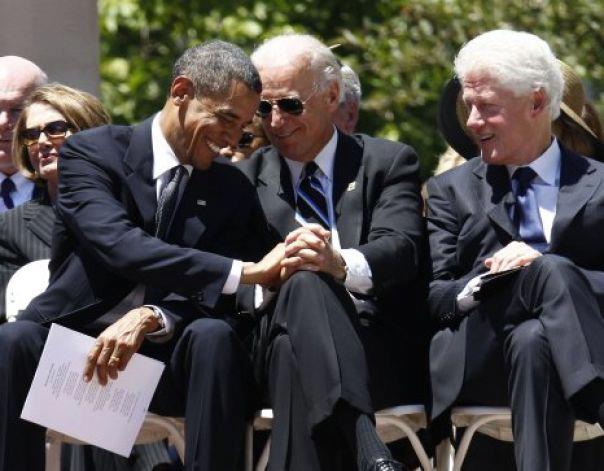


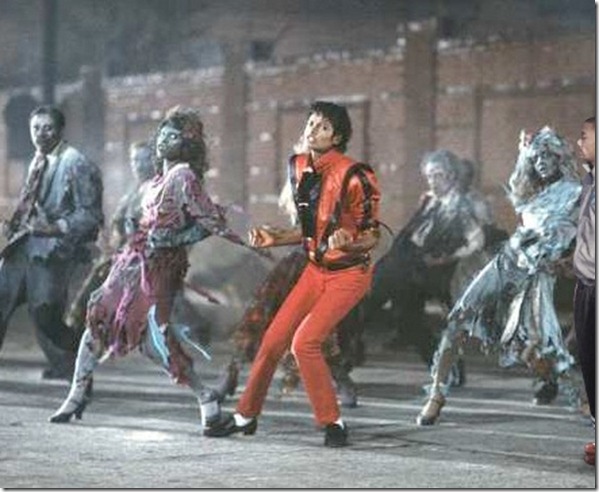

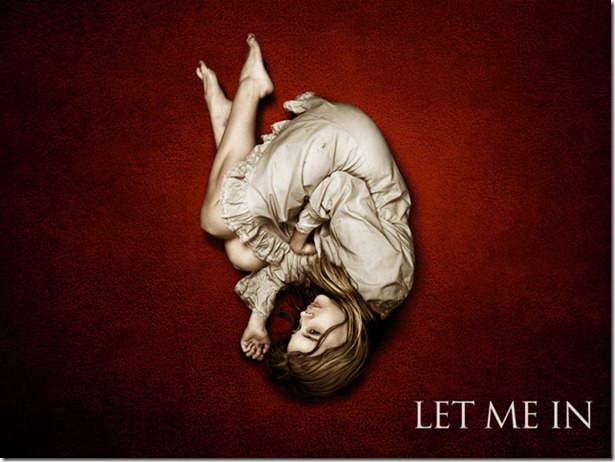























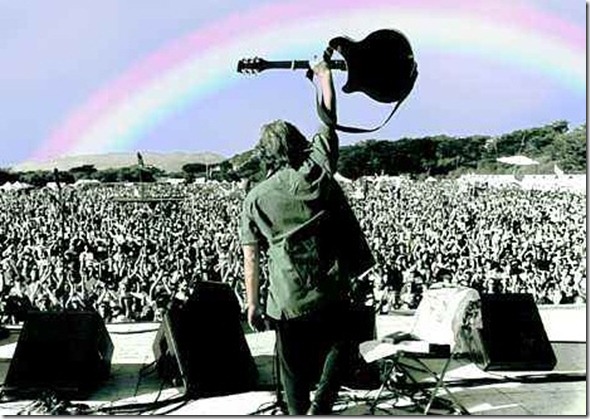















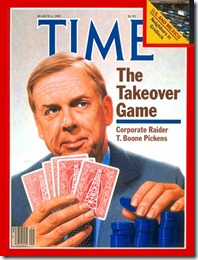


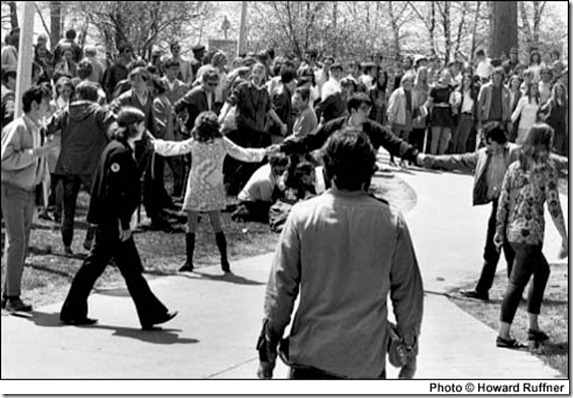
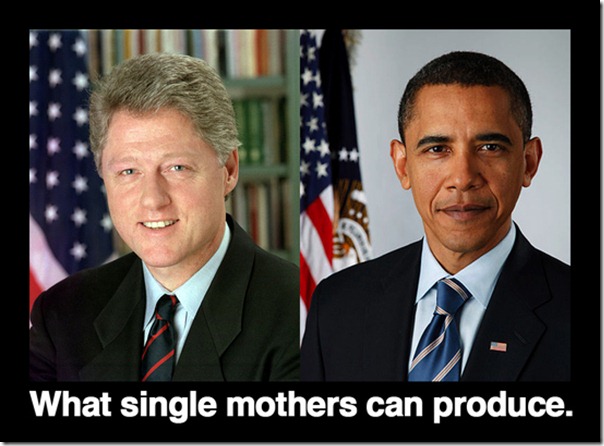

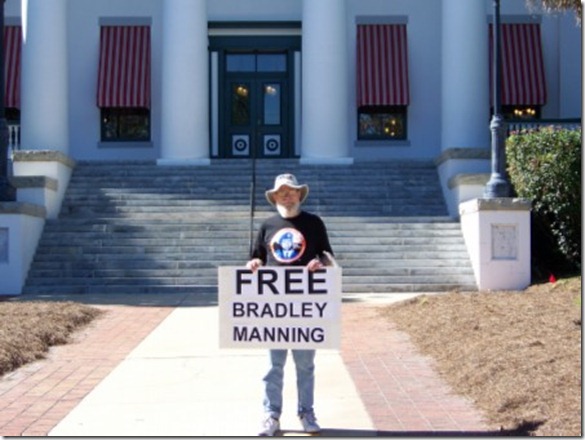







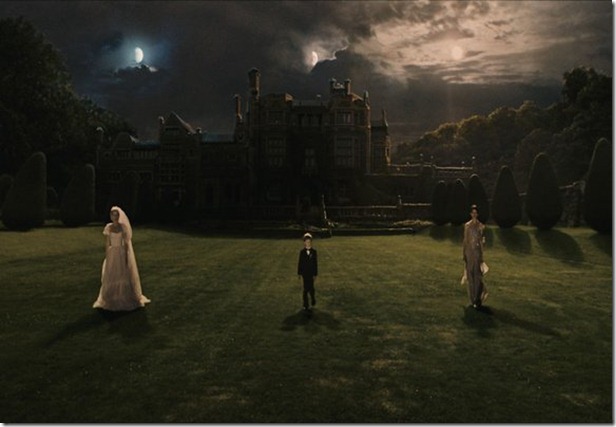










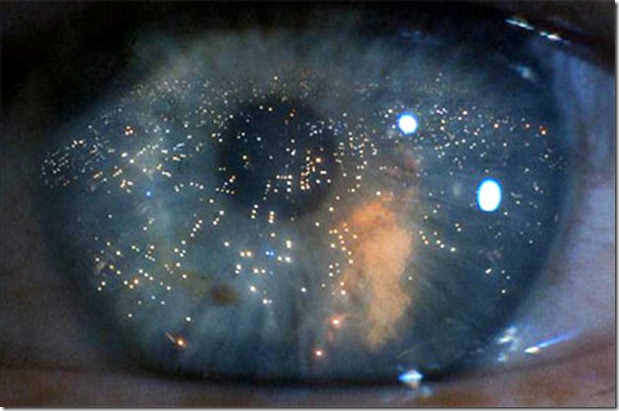






























































































 The rock groups and their lyrics themselves are often blatantly perinatal. The most obvious example of this was the group, Nirvana, who came out with a CD titled “In Utero.” The fact that the leader of the group, Kurt Cobain, committed suicide is a strong indication of his closeness and access to his perinatal trauma…as I will soon explain.
The rock groups and their lyrics themselves are often blatantly perinatal. The most obvious example of this was the group, Nirvana, who came out with a CD titled “In Utero.” The fact that the leader of the group, Kurt Cobain, committed suicide is a strong indication of his closeness and access to his perinatal trauma…as I will soon explain. 






















































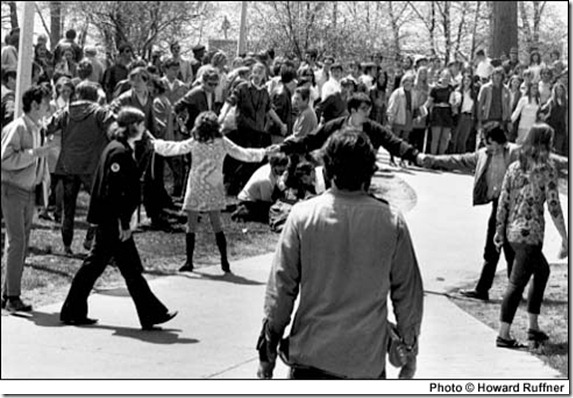























































































Money Madness and the Rise of “Obvious Truths” … Around Taxes, the Wealthy, Job Creation, Democrats, Republicans, Generations, Your Life, and You: When ALL You Hear Are Lies, You Think It HAS to Be Truth
Posted by sillymickel in activism, authenticity, being yourself, Class, Culture, economics, Generations, globalrevolution, History, individualism, nonconform, occupywallstreet, philosophy, Politics, psychology, spirituality, US on July 21, 2012
Foolin’ the People … About Money, About “Us” (The 1%), About Taxes, About Job Creation, About Democrats, About Republicans, About Generations, About Your Life, About You: Choose the Red Pill
Culture War, Class War, Chapter Fifteen: Money Madness
Tax the Wealthy, You’re Taxing Me … Foolin’ the People About Money
Obvious “Truths”—Fiscally Responsible Republicans and Tax and Spend Democrats
Obvious “Truths”:
Obvious “Truth” – Tax the Wealthy, You’re Taxing Me
That’s a Small Business?
We’re All Rich. Somehow I Missed That Memo.
Obvious “Truth”: The Democrats’ Want to Take Your Money.
Well how did it get to that conclusion when actually it’s going to lower taxes. And they were saying it over and over again, “No, we don’t even need to know what the plan is; we just know he’s a Democrat and that he’s going to raise taxes,” they would say of Obama…or for that matter of any Democrat at any time in recent history.
Now, how did that become true? Well because…he’s a Democrat and well haven’t you ever heard the term tax and spend Democrats? And there we go again.
Obvious “Truth” – Fiscally Responsible Republicans
Pointing Some Fingers Already
Alright, let’s go back. Pre-Roosevelt turn of the century initiatives so common and familiar now, such as the Food and Drug Administration, are the kinds of things Democrats brought in that added to government. Yet, Republicans spout misinformation; they get people angry about “evils” of such “big government.”
Misplaced Credit
The Democrats are the ones who brought in the FDA, worker’s rights, workman’s compensation. They’re the ones who put in Medicare. They’re the ones who put in Social Security.
Misplaced Blame
And we remember the Republicans are the ones who created the Great Depression, created poverty for everybody at that time. They’re the ones who did it again with Bush, who tripled and nearly quadrupled the National Debt under the twelve years of Reagan-Bush, then more than doubled it under George W. That’s a lot of goddamn money.
That’s a Lot of Money.
And even afterward, all Congressmen were agreeing that’s a huge amount of money, which at the time was the biggest amount of money being spent at one time, in such a short period of time on anything.
was the biggest amount of money being spent at one time, in such a short period of time on anything.  And how could we forget that they just took the money and did whatever they wanted with it? They paid off debts to other rich friends; they went overseas and invested in other countries.
And how could we forget that they just took the money and did whatever they wanted with it? They paid off debts to other rich friends; they went overseas and invested in other countries.
Chase Didn’t Use the Money for What It Was Intended.
Obvious “Truths” – Tax and Spend Democrats
Social Security, Medicare, and Surpluses, Oh My!
It has nothing to do with the truth. Certainly Roosevelt benefited all Americans with Social Security and so on; certainly Medicare, brought in under Lyndon Johnson benefited the vast majority of Americans. All these things the Democrats did. And Clinton raised taxes on the very rich a few percentage points and balanced the budget. Clinton created jobs and prosperity, balanced the budget, reduced the National Debt, and created a surplus that could have gone into creating a better America for all Americans. But, no, that was considered bad, because they said it hurt all Americans when the extremely wealthy had to give a little more in taxes.
And Clinton raised taxes on the very rich a few percentage points and balanced the budget. Clinton created jobs and prosperity, balanced the budget, reduced the National Debt, and created a surplus that could have gone into creating a better America for all Americans. But, no, that was considered bad, because they said it hurt all Americans when the extremely wealthy had to give a little more in taxes.
The Fun Times Anticipating the Surplus
Never mind the facts, never mind that fact that we had a surplus that we were talking gleefully about how we were going to spend it. If you can remember, we were discussing investing in better roads and infrastructure that would have benefited even the businesses.
Stealing Home
The Wealthy Are the Creative Sector All Right … Creative in Stealing Our Money
Obvious “Truth”—The Wealthy Are the Job Creators
Obvious “Truths”:
Obvious “Truth” – Rich People Create the Jobs
Obvious “Truth”—The Wealthy Are Society’s Creative Sector.
They’re Creative All Right.
They’re the creative people, huh? Yea, they’re creative in stealing from us. They’re creative in fattening their wallets at our expense. They’re creative in getting people elected who are liars and things like that.
That’s not the kind of creativity I’d like to have. As far as creating jobs. Who creates jobs?
Excess Wealth Given to the Rich Created High Art Prices, Not High Employment.
Real Truth—The Rich Will Squander or Sit on Extra Money.
Obvious “Truth”: Non-Wealthy Folks Don’t Create Jobs, Don’t Invest Their Money
Real Truth: People With Less Money Will Sweat Over and Multiply Money, What They Can.
I saw my father do it. He is the same person making the meager fifty dollars a week at one point. And he wasn’t making much more, but he eventually got a truck driving contract with the U.S. postal service. He was able to own several trucks and to hire several workers.
He was able to own several trucks and to hire several workers.
So, why did he do that? Because he didn’t have a lot of money. And by taking those chances and becoming a businessperson, taking that little bit of money he had, he created jobs for a few other people. Because he was motivated, he was desperate. And for him it was all about a chance to raise himself out of being poor. He spent his life scanning for such opportunities till he finally came across one.
And by taking those chances and becoming a businessperson, taking that little bit of money he had, he created jobs for a few other people. Because he was motivated, he was desperate. And for him it was all about a chance to raise himself out of being poor. He spent his life scanning for such opportunities till he finally came across one.
Billionaires Are Not Highly Motivated to Become Millionaires.
But Nobody Will Point This Out!
..
Makin’ People Foolish – Foolin’ the People About “Us” (The Rich)
Makin’ Foolish People – Foolin’ the People About “Us” (The Rich)
Obvious “Truths”:
Confused People Take Comfort in Stupidity
When ALL You Hear Are Lies, You Begin to Think It Has to Be the Truth.
Democrats Feel Like They’re Talking to a Wall; They’re Talking to the Weary.
And pundits wouldn’t delve into their argument, tease out its elements so as to enlighten.
So after a while a lot of these folks are going to say…I’m sure you’ve heard them, they’re Republicans and the ones who vote for Republicans…they would say, “Aw geez , that’s just a bunch of words, it don’t mean anything.”
But what the hell does that mean?
Confused People Retreat Into the Stupid.
..
..
And Burdened People Become Confused People—That’s Their Plan
We’ll Insure You, Up to the Time You Need It
It’s gotten to the point where you have insurance but you dare not ever make a claim. You live with the risk of unexpected loss to your home at any time that you can not cover, because if you make a claim you may not get it next time. You risk losing home insurance and threatening your home. What the hell kind of insurance is that? You are insured but they can deny you? They can deny your claim, or as it happens all the time, you have one or two claims, and you no longer have an insurance company.
Rational Thought Replaced With Slogans … How Can Anyone Know the Truth?
How Can Folks Unite Against Injustices Hidden From Them
That is the result of factoids, “obvious truths,” replacing reason in burdened and confused minds. So how could these people possibly, without being able to see clearly, how could folks like this ever be united against the REAL injustices against them…which they don’t even realize are happening…their minds filled with the fake stuff?
How Can Folks Protect Themselves From “Wizards” Hiding “Behind the Curtain”?
With all this, how can anybody know what the truth is?
A Rising Tide Lifts All Yachts … The Rich Are Getting Richer and the Workers Are Getting Humiliated
Increasing Humiliation of Working People, the Rich Get Richer at Our Expense
Obvious “Truth”:
Real Truth – The Rich Get Richer at Our Expense.
Life Has Gotten Harder – Real Truth
Real Truth – Our Suffering Has Paid for Even Greater Obscenities by the Wealthy.
Humiliation…Increasing Humiliation of Working People
We have these huge corporations taking over and it’s humiliating to people. I mean in times past we had the small retailer, perhaps this person had a small coin shop, bakery, drugstore and pharmacy, shoe shop, maybe a corner grocery store. Now, there aren’t any small stores like that. And where does that person end up making a living?
Well, he worked in retail so maybe he even ends up working for the same department store hat pushed him out of business. So what does that do to your self-esteem?
I can say I feel fortunate to have lived many years in an America quite different from what most people in America being younger than me have been growing up with.
Hippies, Yippies, Yuppies … How the 1% Diluted the Progressive Movement by Slandering Boomers to Foster Culture War Between Them and Gen Xers and to Distract from Their Own Looting
The Yuppies Were Hardly Boomers … But This Idea Supports a Right-Wing Agenda by Pitting Progressives Against Each Other … Try the Red Pill Instead
Obvious “Truths”:
Real Truth – All the Above Are Lies … Propaganda to Further the Motives of the 1%, the Filthy Rich
I can say I feel fortunate to have lived many years in an America quite different from what most people in America being younger than me have been growing up with.
I watched in the early Eighties the lies about a “Me Generation” coming out. Republicans brought that out to beat people down with. The idea was planted that people who wanted anything for themselves were selfish, for after all only the wealthy should ever benefit.
The 1% of the WWII Generation’s response to Sixties activism on campus, as I showed earlier, led to their taking over the universities in the early Seventies and turning them away from the humanities and social sciences and into career mills; I was there and observed it first hand. The success of this is what created the Yuppies in the Eighties–young upwardly mobile professionals–who were the first batch of Generation X—who are those born 1961 to 1981, who therefore left high school beginning in 1978. [Footnote 1]
So these Gen X Yuppies were coming onto the scene in the early Eighties, when the first of them were leaving the universities. The turnaround in education, away from free thinking and towards conservative careerist values, was in full swing by the time they reached college in 1978 on. And its effect on them was patent when they began coming of age. They were what the WWII Generation wanted: money-oriented and compliant…greed had been made “good” again. Standouts of this generation today are Sarah Palin (born 1964), Eric Cantor (born 1963), Rand Paul (born 1963), and Paul Ryan (born 1970).
So then the WWII Generation, fully in charge of society, could point to these yuppie spawn as examples of the obscenity of greed, thus deflecting attention away from their own, WWII Generation, me-spiritedness. To further their ends, they also claimed the origins of this unseemly greed lie in the failed, unrealistic values of the Sixties generation and their idealism.
Whereas this actual Me Generation, these Yuppies, were predominantly a bunch of reactionary young people who said to hell with this idealistic stuff, and of helping out, and kumbaya, and all that stuff. They said, we’re for money, to hell with any one else. And somehow the WWII-Generation-owned media, assisted by a Fifties Generation now in their prime, convinced folks that these careerists out only for themselves were the one-time visionaries. Of course they only pulled this off because they owned or controlled all the major organs of expression in America—the newspapers, magazines, TV, radio, education, book publishing. I’ve delineated how they did this in one of the earliest all-out assaults, after their initial setbacks in the Sixties, of the Culture War/Class War they have been waging on the 99% since that time.
The media flooded American minds with the idea that the Me Generation was My Generation (I’m “talkin’ bout my generation” here) in the Eighties. They had prepared the ground for that lie, as there had been constant slander of my generation in the press since the beginnings of our activism in the Sixties, exactly like they are now putting out against the Millennials and those in the Occupy movement today. Beginning in the Seventies, owning the publishing and media industries, they concocted the lie that there was a conservative backlash going on. (See Chapter Two: Matrix Aroused, the Sixties and The Big Lie About Yuppies Being Hippies.)
This supposed conservative backlash was merely a continuation of Nixon’s laughable claim that he was supported by a “Silent Majority,” which he had used since the beginnings of his term in 1969 and which was obviously false, as demonstrations grew in size and support swung away from him throughout this period; and eventually he was forced to resign. But Republicans always claim there are a majority of real folks out there—“real Americans” as Palin and her kind say today—who support them but are doing it secretly. (btw, lol!)
Anyway, by the Eighties the powers-that-be were able to place this idea of a selfish “Me Generation” of Sixties youth, which they had been saying for a while, as being the ones on the campus at the time or recently out, the Yuppies. It fit their narrative. But it was a lie, and virtually all my generation knew it and thought it laughable. We stopped laughing after a while as over the years, it became clearer they had done such a good job of preparing the ground and repeating the lie that it stuck in the minds of those other than my generation—the Fifties Generation ahead of us and Gen X behind us—and the right wing, who of course saw this as red meat to further their causes. The media controlled by the 1% said the Sixties generation had gone from idealism to just wanting money, thereby discrediting their opponents, us who were consistently representing the 99%. At the same time they gave credibility to their claim of the superior veracity of their own values of greed, materialism, ruthless pragmatism, ego above all, and even me-spiritedness. Also, it validated, even glorified their personal traits of conformity, hard-headedness, cynicism, compliance, and even mean-spiritedness .
The Lies About Jerry Rubin
They could only give one example, Jerry Rubin; and even about him they lied and slandered. First off, neither Jerry Rubin, or Abbie Hoffman for that matter, were Boomers or Sixties Generation members. They were Fifties Generation, born in 1938 and 1936 respectively. Boomers were born in the post-WWII baby boom from 1946 through 1960. So that is enough to discredit what they said about “my generation.” But taking it as an attack aimed at the counterculture, let’s examine it:
They said Jerry Rubin was engaged in trying to make money. And they never mentioned what he was trying to make money on… but God forbid anyone but them should try to make money anyway. You see, what the 1% do is drive people into lowered standards of living and poverty where they experience desperation for money at times. Then they can point to that grasping to survive as proof that their values of money above all else are legitimate and that it is not possible for humans to have any other values higher than that. They create the conditions that they can use to support and validate themselves…how convenient.
but God forbid anyone but them should try to make money anyway. You see, what the 1% do is drive people into lowered standards of living and poverty where they experience desperation for money at times. Then they can point to that grasping to survive as proof that their values of money above all else are legitimate and that it is not possible for humans to have any other values higher than that. They create the conditions that they can use to support and validate themselves…how convenient.
But Rubin’s position in this “debate”—which was actually a discussion of different ways the Sixties values might succeed, not be overturned—was that the POOR COULD BE HELPED by promoting programs to create wealth in their communities. I quote:
Someone who knew him well, Stew Albert, said this of Jerry in eulogizing him.
And,
Does that sound like someone promoting the interests of the 1%? Or like someone just out for himself, as Yuppies really are? Remember that at the time, militant, even violent revolution had been in the air for a while—with the Weather Underground, the Black Panthers, and the Symbionese Liberation Army and such. So “Yippie vs. Yuppie” was a leftist debate about tactics. Today it would be considered a discussion of liberal vs. progressive views…hardly conservative, Yuppie, or Republican views. And Jerry Rubin’s putting on a suit made him about as conservative as it made Bob Dylan a conservative when he picked up an electric guitar at the Newport Festival of 1965. Dylan got booed for what was only considered unusual alongside some very high, and strict, expectations about purism in music having nothing to do with political ideology or musical quality but simply technology. Rubin’s wearing a suit was the same kind of thing at the time he did it…and it had nothing to do with ideology but simply tactics—i.e., revolutionary technology.
Also, at the same time as Rubin was doing all this and supposedly a Yuppie, he was running a legal and civil rights office in an artsy/alternative part of L.A., Echo Park, where he also lived. When he died he was on his way to dinner in the company of Fred Branfman of the Making a Difference project, whose purpose was to bring money into poor communities by helping inner-city youth learn how to start their own businesses. Does that sound like a Wall Street careerist? Does that sound like he turned over his ideals and bowed to the god of money? So, lies, lies, lies. And these lies become instituted and they’re not challenged after a while, after you hear them for decade after decade after decade….
You have to be older to know that it wasn’t always the way they tell you it is. It helps to have lived in different times and places and to have seen things with your own eyes to be able to see through these inane “obvious truths” that people take as absolute truths. It helps to have had experience with the things they are talking about to know what are actual facts and what are complete fabrications.
Setting the Record Straight on Boomers
Boomer-Generation X Culture War
A friend who supports the Occupy movement, and who happens to be a Gen Xer, recently shared this with me,
If this person were correct, then why have the Boomers voted consistently Democratic? [Footnote 2]
The Gen X/Yuppie—Fifties Generation alliance was responsible for getting Reagan, Bush I, and Bush II elected. Boomers voted against Republicans, especially these; it’s all in the public record. Reagan, Bush I, and Bush II are the ones who did the tax cuts. Whereas Clinton—a Boomer and a Democrat—raised taxes on the 1% and balanced a budget for the first time.
Indeed, all Democratic candidates and Presidents going back to Roosevelt at least, with the one small exception of Kennedy favored and fought for raising taxes on the 1%, not cutting them, so as to relieve the burden on the 99%. The right likes to use Kennedy as an example of a Democrat seeing the wisdom of cutting taxes to improve the economy, but Kennedy’s proposed tax cut for the 1% was when the marginal rate was 91% range, not at 35% as today, and the country was prosperous. (See The Myth of JFK as a Supply Side Tax Cutter.) Also it was not instituted until Johnson began his term … which was incidentally when the huge deficits began. So Kennedy’s tax cut had nothing at all to do with the prosperity we enjoyed during his term, indeed its institution marked the beginning of increasing deficits.
Even today, it is Democrats—supported heavily by Boomers—who are opposed to tax cuts and favor reining in the greed of the 1%. This includes Obama, who incidentally is a Gen X-Boomer cusper, born 1961. Note that he has surrounded himself with Boomers—Biden, Clinton, et al. And they are engaged in that same Democratic struggle of decades past of trying to get the 1% to pay their fair share in taxes. Meanwhile Republicans supported by that Fifties Generation (the Koch Brothers, John McCain, Dick Cheney, Mitch McConnell, et al) – Gen X/Yuppie (Palin, Cantor, Ryan, Rand Paul) alliance oppose Boomer-Democratic tax and other progressive initiatives at every turn.
This includes Obama, who incidentally is a Gen X-Boomer cusper, born 1961. Note that he has surrounded himself with Boomers—Biden, Clinton, et al. And they are engaged in that same Democratic struggle of decades past of trying to get the 1% to pay their fair share in taxes. Meanwhile Republicans supported by that Fifties Generation (the Koch Brothers, John McCain, Dick Cheney, Mitch McConnell, et al) – Gen X/Yuppie (Palin, Cantor, Ryan, Rand Paul) alliance oppose Boomer-Democratic tax and other progressive initiatives at every turn.
So to accuse Boomers, who voted predominantly for these Democrats and their policies, of cutting taxes is grossly misinformed or a lie. And for a Gen Xer to do this blaming is either ignorant, a denial, or delusional…but is in any case a product of that misinformation I’ve been talking about.
For to address that Gen Xer’s charges of Boomer’s causing the dependence on dirty foreign oil, the Sixties Generation started the environmental movement. I know a little about this; as I explained previously, I was one of those who helped bring nuclear plant construction to a halt in America, which we did in Springfield, Oregon, in the early Eighties. We, Boomers…I was born in 1950…supported Democrats who fought for environmental legislation, alternative energies, and reduced dependence on dirty energies against Republicans, supported by the Fifties-Gen X alliance, who watered down those policies and legislated a rape of our natural resources and our environment to benefit big business, Big Oil, Big Nuke, Big Coal, and the 1%.
As for the accusation that Boomers sent our manufacturing base overseas and caused a lowering of middle class wages, how can that possibly be true alongside the more than obvious knowledge that Democrats are the ones who consistently push for and favor raising the minimum wage and are the union supporters? Can this OWS person not be aware of the parallel Wisconsin union movement which has Democrats and union folks up against Republicans and Gen X/Fifties Gen Koch-supporters? Or is he somehow unaware of the fact that Boomers have consistently voted in greater numbers for Democrats than Republicans over all these decades? [Footnote 2]
Well, this shows the amount of success the WWII Generation and Fifties Generation enjoyed in shifting the blame for their policies and their theft of the national wealth. And, by the way, it was the WWII Generation that had the greatest retirement wealth per person and who instituted Social Security and other benefit programs for themselves … making themselves the wealthiest as well as the “Greatest Generation.” Probably with the tax cuts, the current Fifties Generation who in their retirement years are raping the wealth of the country to fatten themselves, are bettering them. Whereas the Sixties Generation, scapegoated again, is facing cuts in Social Security, Medicare, and other benefits at the exact time as they need it and are facing or entering retirement—being beaten down, harassed, and scapegoated by the Gen X-Fifties Generation alliance again.
You think this is ancient information and is irrelevant to what is happening today? Remember that the comment I quoted above from my Gen X friend and fellow Occupier was from only last week. He has his sights set on my generation as the perpetrators of the problems; these ideas have caused a split between Gen X and Boomer Progressives. I can tell you that his comment is not atypical from others I hear from Gen X in their attitudes toward Boomers.
Similarly, to some extent the Millennials believe Boomers are at fault also—this is what they have been taught. They are simply misinformed and so are not so committed to the lies as the Gen Xers. The Millennials are open to the fact they have been deceived. After all their Boomer parents are models of the fact that these “facts” are actually lies. The Millennials have been made to believe, simply, that their own parents and those of their friends are somehow just different from those “bad Boomers” out there who are really the selfish and tax-cutter ones.
The Millennials are open to the fact they have been deceived. After all their Boomer parents are models of the fact that these “facts” are actually lies. The Millennials have been made to believe, simply, that their own parents and those of their friends are somehow just different from those “bad Boomers” out there who are really the selfish and tax-cutter ones.
Lies and toxic misinformation are not healthy, at all, for a movement that is predominantly an alliance of Millennials and Boomers, with some Gen Xers (notably, few Fifties Generation folks). After all, how do you think a progressive Boomer feels, after fighting his entire life with his generational cohort for the changes that we are still fighting for with the OWS and Wisconsin union movements, and after hearing his entire life the made up lies, the slander, the scapegoating about himself, his generation, and his beliefs? How do you think she feels seeing those same lies being pulled out again and thrown against OWS supporters, for example, continuing therefore to throw salt into old wounds? And finally how do you think she feels to hear from her friends and allies in the movement that she has been the problem all this time, not the solution? It is disheartening, to say the least.
after fighting his entire life with his generational cohort for the changes that we are still fighting for with the OWS and Wisconsin union movements, and after hearing his entire life the made up lies, the slander, the scapegoating about himself, his generation, and his beliefs? How do you think she feels seeing those same lies being pulled out again and thrown against OWS supporters, for example, continuing therefore to throw salt into old wounds? And finally how do you think she feels to hear from her friends and allies in the movement that she has been the problem all this time, not the solution? It is disheartening, to say the least.
In this antagonism against Boomers, the other side—the WWII-Fifties Gen alliance, supportive of the 1% and their Tea Party sycophants—have won again. [Footnote 3]
For these WWII-Fifties Gen lies have thrown discord into progressive ranks. And they have thrown off the aim of our movements as to who the perpetrators are, giving the 1% a convenient fog of confusion behind which they can continue unfettered their actions against us.
Finally a most visible example of the right-wing/Republican Fifties Generation – Gen X alliance was shown in the last presidential election with a Fifties Gen, McCain, matched with a Gen X – Palin, born in 1964, coming smack in the middle of the Yuppies (1961 through 1970). This is the generational alliance and the generational values we should be targeting, not Boomers, and Progressives would do better to know that.
The “Truth Dividend” of Having Been Around
So, in understanding what might be the truth and what are obviously lies, it helps to be older, for you can know that it wasn’t always the way they tell you it is or has to be. It helps to have lived in different times and places and to have seen things with your own eyes to be able to see through these inane “obvious truths” that people take as absolute truths. It helps to have had experience with the things they are talking about to know what are actual facts and what are complete fabrications.
And with that seeing comes the knowledge that over the course of the last fifty years America descended into a deep slumber of untruth from which it could not awaken…regardless of all the righteous efforts of many true-seeing progressive activists who did their best to sound alarms.
Continue With Culture War, Class War, Chapter Sixteen: The Fall of “Obvious Truths”
Return to Culture War, Class War, Chapter Fourteen: Better Off Than Fifty Years Ago?
The Rise and Fall of “Obvious Truths,” Part Three – an Audio Reading by SillyMickel Adzema
Here is an audio of the author’s impassioned reading of this part. Though it is of the first, unedited and unpolished version, and it does not contain all the detail of its current form, it does capture the flavor of it all. I offer it here for your listening pleasure. For the reading of this part, “The Rise and Fall of ‘Obvious Truths,’ Part Three,” click on the link to the audio site above or click the link to the audio player below.
http://ecdn0.hark.com/swfs/player.swf?1305835355
Footnotes
1. A lot of confusion about Boomers, Yuppies, And Generation X has been generated by the Census Bureau and main stream media. A generation, see below, is defined as a cohort of people occurring roughly every twenty years who share some common viewpoint and experiences.
This is what a generation actually is:
Meanwhile, the U.S. Census Bureau definition of Boomers is different. See Baby boomer.
Why would it be different? That is the crucial question. The Census Bureau’s definitions of Boomers and Generation X is as follows:
So why are those born 1961 through 1964 considered part of the Boomer Generation by the Census Bureau, which has informed much of the discussion on this? Why is the Census Bureau attributing only 17 years to Generation X but 19 years to Boomers, when in fact the Boomers were born in a World War II “baby boom” that had them being born in a distinctly shorter period. Whereas Generation X was born of the Fifties Generation during a more languorous, hence longer period? Why is the Census Bureaus including as Boomers those born at those end years of 1961 through 1964 when the number of births was decreasing, not “booming”?
I don’t know the answer, but I do know this decision by the Census Bureau has served pundits and right wing commentators in giving more weight to their positions by diluting the distinctly liberal voting record of actual Boomers. As I have been stating above, there was a concerted effort to scapegoat Boomers and to confuse them with Yuppie-Gen Xers. This confused definition by the Census Bureau is part of that. It has allowed pundits to slander the Sixties Generation, as I said, by attributing qualities to them that were actually a part of the WWII Generation’s Culture War Attack of creating a generation different from and more compliant than the Sixties Generation/ Boomers.
At any rate, that is why we have the discrepancy shown in this description of the Pew Report findings on “Boomer” voting patterns. Let’s look at a few relevant findings:
This supports what I’m saying about generational voting patterns. The difference lies in that this author has to differentiate between late Boomers and early Boomers. They are opposite in their voting patterns. This person wouldn’t be so confused if he placed the generational divide where it belongs, at 1961, not 1965. Boomers were born between 1946 and 1960, as shown in the chart below, which also shows Generation X beginning in 1961.
The Boom Generation defined by Howe and Strauss, as shown in the chart above, born 1946 thru 1960 are the ones who vote consistently Democratic. They are the ones who shared common events and experiences growing up and were shaped by them, notably the Vietnam War; the JFK, RFK, and MLK assasinations in 1968; the sexual revolution; the explosion of the use of LSD and pot as drugs, and the counterculture. These events were not on the cultural map that faced the ones born 1961 through 1964, for they were too young. Yet how can one define a Boomer-Sixties Generation that does not include these as formative experiences?
So this discrepancy is an example of what I’m talking about in this article. For it continues the confusion about Boomers and contributes to the scapegoating and the denigration of Boomers as being a Me Generation and Yuppies being former hippies by simply getting confusing results by including some from Gen X—some actual Yuppies. To include those born between the four years, 1961 through 1964, you end up getting the confused results this author gets. You are including the likes of Sarah Palin and Eric Cantor, fer Chrissakes! I’ve never heard anyone mistake them for my generation. It would have Barack Obama, born 1961, categorized as a Boomer, as if there is not an obvious generational difference between him and some the notable Boomers in his administration, like Joe Biden and Hillary Clinton. But by seeing that Obama is a Yuppie-Gen Xer, it helps explain the differences between him and the actual Boomer president, Bill Clinton.
To include those born between the four years, 1961 through 1964, you end up getting the confused results this author gets. You are including the likes of Sarah Palin and Eric Cantor, fer Chrissakes! I’ve never heard anyone mistake them for my generation. It would have Barack Obama, born 1961, categorized as a Boomer, as if there is not an obvious generational difference between him and some the notable Boomers in his administration, like Joe Biden and Hillary Clinton. But by seeing that Obama is a Yuppie-Gen Xer, it helps explain the differences between him and the actual Boomer president, Bill Clinton.
For more on this, see Generation Jones, which is the term given for those born 1954 through 1964. They are seen to be very different from the Boomers. They did not confront the same social realities as did Boomers. They even came of age after the Vietnam War. They missed the counterculture movement. It is ludicrous for generationalists to include these with Baby Boomers as especially the second half of these have an entirely opposite world view from Boomers. Their stalwarts include Rick Santorum (born 1958), Sarah Palin (born 1964) and Eric Cantor (born 1963)…hardly Boomers. Notice that it also includes Rand Paul (born 1963), who as expected is the son of a Fifties Generation parent with whom he is allied, Ron Paul (born 1935).
See also the write up on Generation X in Wikipedia, which addresses this confusion as to where the dividing line between Boomers and Gen X is as well.
Finally, see Baby boomer, which discusses this confusion and adds two important considerations: The person who coined the term “baby boomer” described them as those born between 1943 and 1960. So why did the Census Bureau change it? The second point discussed is that many theorists have two distinct generations during this supposed period of Census Bureau Boomers—Boomers and Generation Jones, which are said to be those born 1956 through 1964. So this latter group is not included with Boomers.
Is all this not confusing enough? Does it not play into the right wing agenda to dilute their opponents power by confusing their opponents profile, so they can lob any charge against them? Or attribute any self-congratulatory trait to them, as they wish?
Most of all, this strikes me as devious in that it allows right wingers to blame Boomers for the cadre of youth, the Yuppies, who were actually their creation—that of the 1% and those reactionary culture war forces—and were in no way influenced by, so should hardly be included in, “my generation” of Boomers, the Sixties Generation.
2. BLAM!! From the site, Gallup Politics, of May 8, 2009. Even though continuing the misinformation that Boomers were born up till 1964, going with the Census Bureau definition, Gallup Poll data still solidly support the premise that Boomers are predominantly Democrats, as well as the fact that Millennials are as well.
Notice here that not only are arbitrary birth figures used to stipulate Boomers and Generation Xers, but everyone older than a Boomer is classified as part of the World War Two Generation—”The Greatest Generation.” So they would have everyone born in the forty-five year period from 1901 through 1945 to be WWII Gen even though some were born during the war and had their coming of age after the war and in the decade of the Fifties—those born 1925 through 1945. Elsewhere this generation has been termed the Silent Generation or the Eisenhower-Presley-McCarthy Generation…I’m calling them the Fifties Generation for convenience sake. Still, the study does find Democratic tendencies among Boomers, however wrongly defined, and Millennials. And it finds Republican leanings among Generation Xers, however wrongly defined, and the Fifties Generation, however wrongly defined again, as shown by the graph below:
Now contrast what above is said in the Gallup Poll about Boomers with what is said here about “late Boomers,” or who Howe and Strauss and other social scientists would call Generation X, and I would call Gen X-Yuppies:
The article above also describes the Democratic voting patterns of the Millennials, or what they call Generation Y.
On the idea that the Millennials being the sons and daughters of the Sixties Generation/Boomers, as I continually point out, I offer the following definition of Millennials from WhatIs.com
Finally a most visible example of the right-wing/Republican Fifties Generation – Gen X alliance was shown in the last presidential election with a Fifties Gen, McCain, matched with a Gen X – Palin, born in 1964, coming smack in the middle of the Yuppies (1961 through 1970). This is the generational alliance and the generational values we should be targeting, not Boomers, and Progressives would do better to know that.
3. There is some scapegoating done by Millennials out of this misinformation. The following was published a few days ago, on June 17, 2012. It is further validation of the antagonism against Boomers regarding the issues of the movement—OWS and Wisconsin union:
Continue With Culture War, Class War, Chapter Sixteen: The Fall of “Obvious Truths”
Return to Culture War, Class War, Chapter Fourteen: Better Off Than Fifty Years Ago?
Invite you to join me on Twitter:
http://twitter.com/sillymickel
friend me on Facebook: https://www.facebook.com/sillymickel
Share this:
1%, 60s, 70s, 99%, Abbie Hoffman, activism, Al Gore, Alan Grayson, America, american, American way, Americans, art, Baby Boomer, Bachmann, backlash, balance, balance budgets, Bernie Sanders, Biden, big government, Bill Clinton, billionaire, Black Panther, Bob Dylan, boomer, budget, bush, business, campus, Carter, Chase, class, class war, class warfare, clinton, comfort, commentator, compliance, conformity, confused, conservative, corner grocery store, corporation, counterculture, creative sector, culture, Culture War, current-events, democrat, Democratic, democrats, Dick Cheney, diminishing marginal returns, disco, Dukakis, economic, economic tide, Economics, economy, Eighties, election, employment, Environment, Environmentalism, equal time, Eric Cantor, evangelical religion, expense, FDA, Fifties, filthy rich, fiscally responsible, flower children, foolish, Fred Branfman, free love, Gen X, generation, generation x, Glenn Beck, globalrevolution, Goldman Sachs, gop, government, Great Depression, greed, health care, health insurance, hippie, idealism, incarceration, invest, Iraq, ironic, irrational, jails, Jerry Rubin, job creation, job creators, jobs, John McCain, Johnson, Jon Stewart, journalist, Kennedy, Koch, kumbaya, liars, liberal, lie, liep, lies, life, living, mad, madness, matrix, me generation, me-spiritedness, mean-spiritedness, Medi99care, media, medicare, middle class, Millennials, millionaire, mind, misinformation, Mondale, money, money madness, movement, MSNBC, my generation, National Debt, neo-con, nonconform, nuclear, Obama, obvious truth, obvious truths, occupy, occupy wall street, outsource, overseas, overworked, ows, paintings, Patriot Act, Paul Ryan, people, plutocracy, Politics, poor, poverty, presidential race, progressive, progressives, propaganda, prosperity, Psychology, pundit, Rachel Maddow, Rand Paul, reactionary, reagan, real, real American, real truths, rebel, rebellion, red pill, Republicans, revolution, rich, rich elite, richer, right wing, rising tide, Roosevelt, sanity, sarah palin, scapegoat, selfish, Seventies, sexual revolution, silent majority, sixties, slander, slogans, small business, smallbusiness, social security, society, spend, squander, standard of living, starve the beast, struggle, stupid, stupidity, surplus, talking points, tax, tax and spend, tax cut, tax cuts, tax proposal, Taxed Enough Already, taxes, Tea Party, toxic, truth, union, uniqueness, university, untruths, W, Walmart, wealth creators, wealthy, Weather Underground, wisconsin, wizard of oz, worker, World War II Generation, WWII, yacht, yachts, Yippie, young radical, young radicals, Yuppie
1 Comment